Natural Sciences
CoNAS Moves to Popularise the Bachelor of Science Programme, Improve Performance in the Subject of Biology
Published
3 years agoon

Overview
Basic biological research offered by the School of Biosciences at the College of Natural Sciences (CoNAS), more so at the Department of Zoology, Entomology and Fisheries Sciences (ZEFS) requires continuous recruitment of trainees to ensure its sustainability at Makerere University. Over the years, there has been a decline in the number of students admitted to offer biological courses at the School of Biosciences due to poor performance, but also the negative perception about the courses. These courses are often termed as “FLAT” during career guidance at high school, an indication that even the career teachers do not have a clear understanding of the Bachelor of Science degree programme. The perception that the programme is flat with no job prospects makes it unpopular, yet basic sciences are a pivot for several other applied sciences that significantly contribute to the wellbeing of humans and the economy of the country. For example, studies in basic Zoology, Botany, Chemistry and Biochemistry are a basis for effective understanding of applied courses such as plant breeding, vector control, wildlife management, plant pollination, environmental conservation, veterinary science, and human health management, among others. The decline in uptake of these programmes is a big challenge as it is likely to affect the learning of applied sciences.
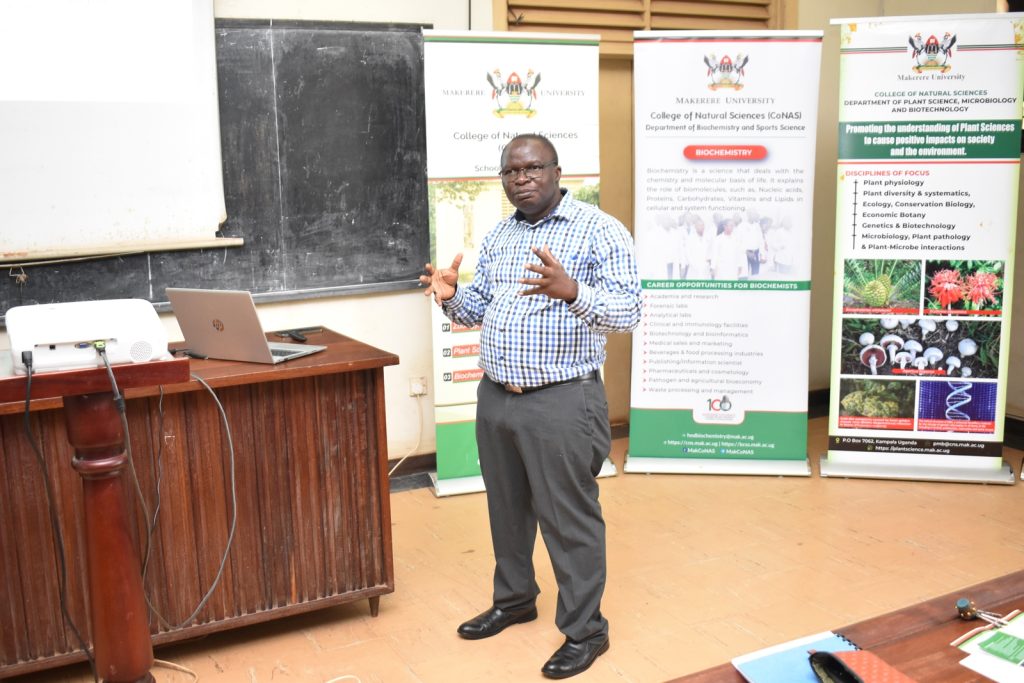
The reduced recruitment of students into basic sciences has long term implications of missing on key scientists to support research in various scientific fields, yet the graduates of Bachelor of Science degree have numerous opportunities to undertake research and academic work in several national and international research institutions, academic institutions, and the private sector. The use of the term “FLAT” by career masters reflects the lack of clear understanding of the vast opportunities that this course exposes the candidates to, both in public and private sectors.
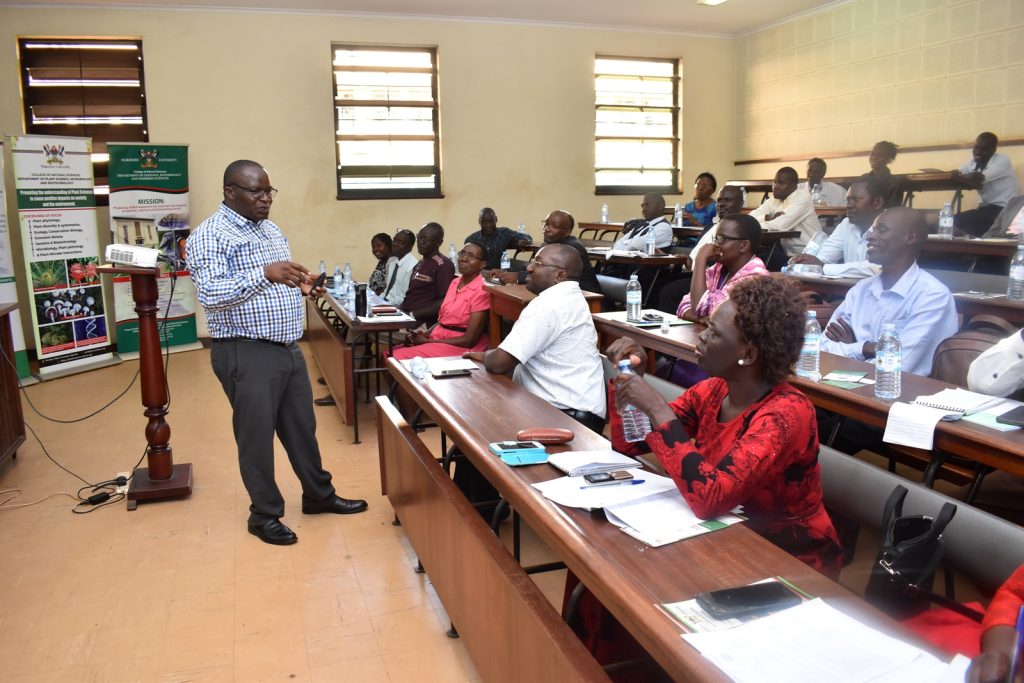
Plans to popularise the Bachelor of Science programme
To increase uptake, CoNAS has embarked on a programme to popularize the courses offered at the School of Biosciences among high school science teachers and learners by deciphering the myths associated with the Bachelor of Science degree. Broadly, the action aims at arousing the interest and improve academic performance among high school students in biology, and ultimately increase the students applying for the courses offered at the Department of Zoology, Entomology and Fisheries Sciences. Specifically, the programme aims to popularize research by early career researchers in the Department of Zoology, Entomology and Fisheries Sciences in selected schools with A-level biology students, as well as biology and career teachers. The Department of Zoology, Entomology and Fisheries Sciences will engage selected schools to share progressive research, experiences and lessons learnt to cultivate/arouse interest among the biological students in high schools. During the engagement sessions, the team will discuss possibilities to improve performance in biology and inform the next course of action.
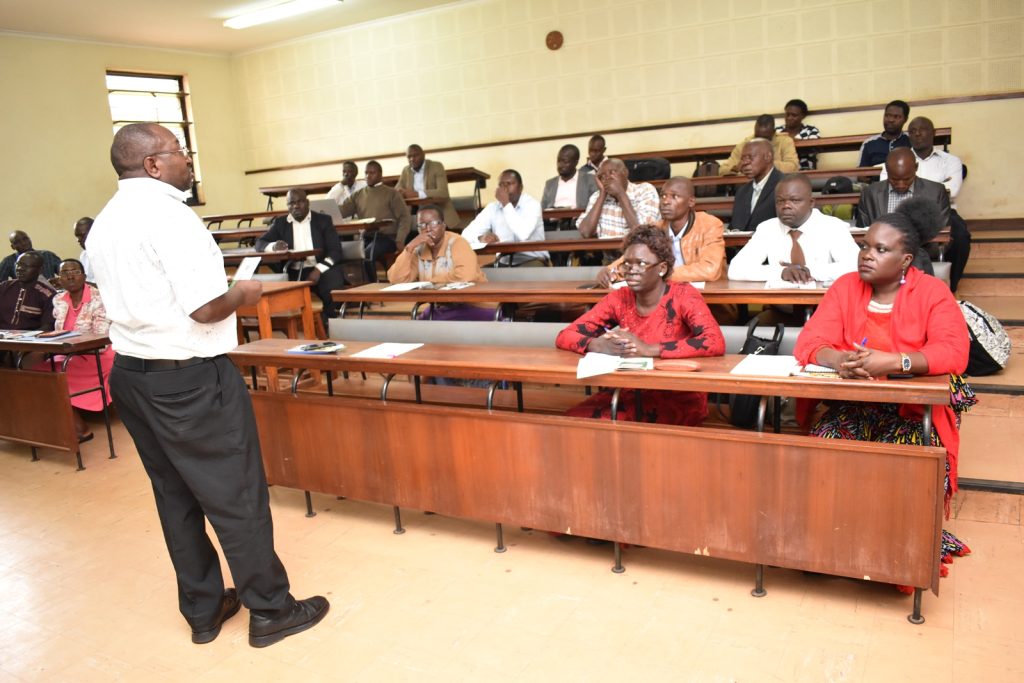
The programme is coordinated by Dr Godfrey Kawooya Kubiriza, a Lecturer in the Department of Zoology, Entomology and Fisheries Sciences and a postdoc fellow for CECAP. It is part of the activities supported under his project on “Popularizing early career research for increased visibility of the Department of Zoology, Entomology and Fisheries Sciences”.
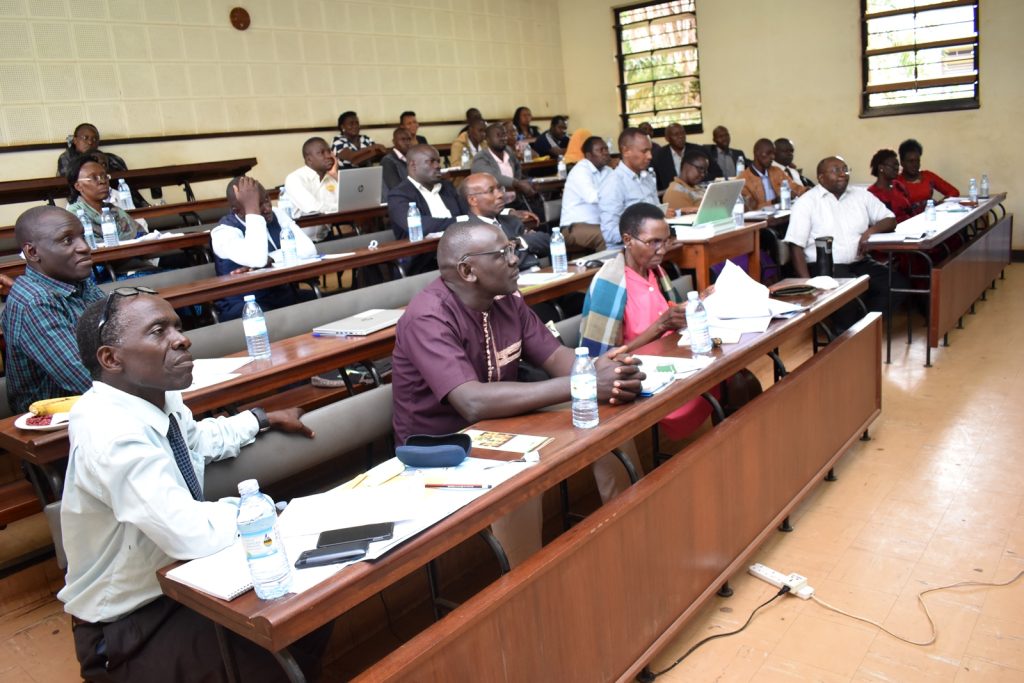
CoNAS engagement with Secondary School Biology teachers
On 26th July 2023, the CoNAS through the Department of Zoology, Entomology and Fisheries Sciences held a seminar for Secondary School teachers from selected schools around the country. The one-day seminar was funded by the Carnegie Corporation of New York, through the Directorate of Research and Graduate Training at Makerere University. It was intended to bridge the gap between the School of Biosciences, Makerere University and high school biology teachers in Uganda. It was also aimed at sensitising the teachers about the programmes at CoNAS, the importance of the Bachelor of Science programme and the opportunities it presents. The Seminar held at ZEFS was graced by the Commissioner in charge of Crop Inspection and Certification at the Ministry of Agriculture, Animal Industry and Fisheries (MAAIF), Mr. Paul Mwambu; the Principal of CoNAS, Prof. Winston Tumps Ireeta, and senior academics from the School of Biosciences, Makerere University.
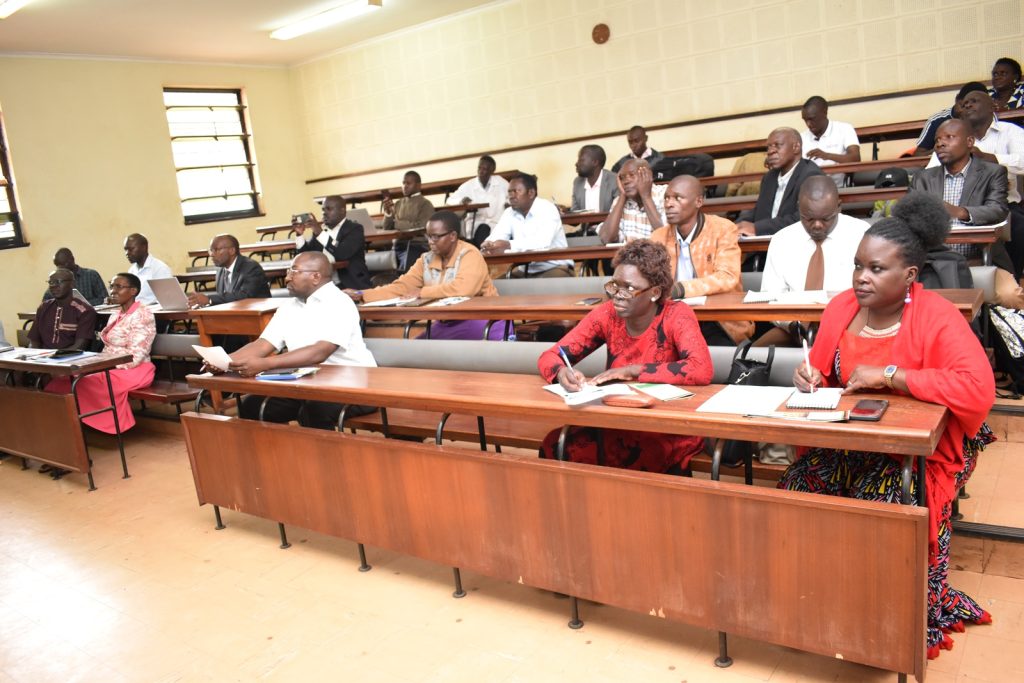
During the engagement, academics from the School of Biosciences sensitized the teachers on the programmes in their departments, highlighting the different course units, research activities, career prospects and opportunities, and emphasizing the importance of the BSc programme.
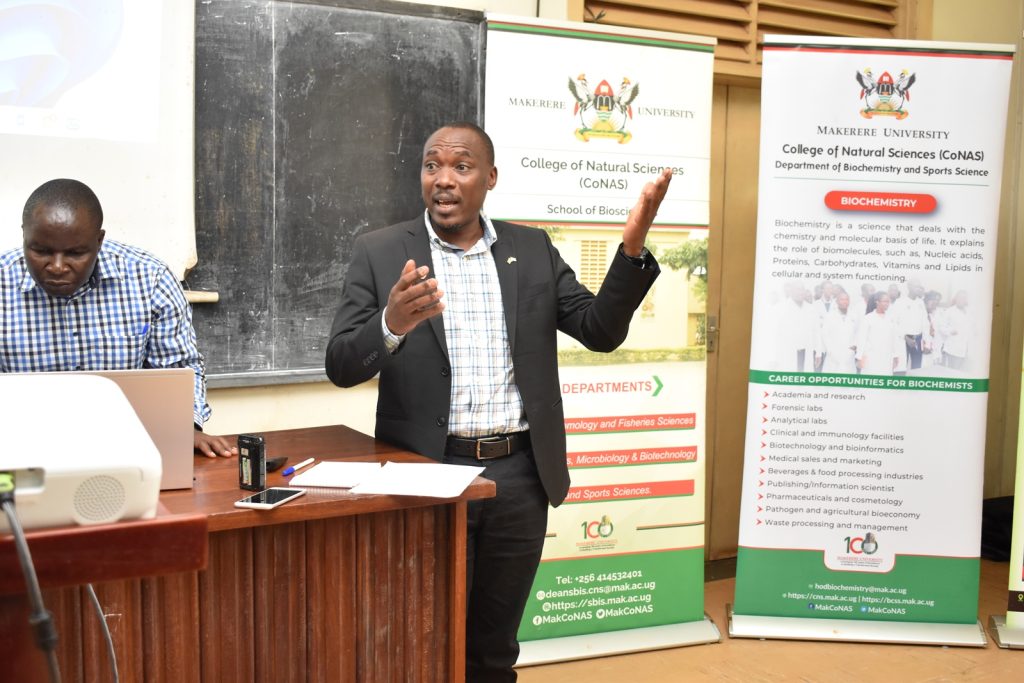
The Dean, School of Biosciences, also Patron of the Biology Society of Uganda (BioSU) delivered a presentation on the past, present and future dynamics of biology, stressing its relevance in driving the world systems in the next century. He also briefed participants on the BioSU and its intended purpose to improve performance in the subject of biology that has been declining over the years. A research conducted in the performance of Biology at the UACE sitting of 2018 whose results were released in February 2019, indicated that a total of 13,061 candidates sat for Biology countrywide, and of these only 1 candidate scored an “A”. That year, only up to 38% of the candidates scored at least an “E” leaving almost 80% failed (score O or F). In the next year’s sitting of 2019, only 44 candidates countrywide scored “A” in Biology. This trend was found quite repeated several times before 2018 and has not improved to-date post COVID-19. To solve this problem, Makerere University through the School of Biosciences at CoNAS in partnership with the College of Education and External Studies (CEES) under the supervision of the office of the Deputy Vice Chancellor in charge of Academic Affairs has embarked on a programme to identify the root causes of poor performance, by undertaking a detailed and carefully planned analysis of the qualifications, competence, and availability of Biology teachers and technicians at A’ level; the scope- breadth and depth of Biology curriculum at A’ level; how topics are segregated or not segregated in different UNEB past papers of Biology at A’ level in comparison to other A’ level subjects; the state of laboratory and field infrastructure for teaching Biology at A’ level; and attitudes of learners/students towards Biology at A’ level.
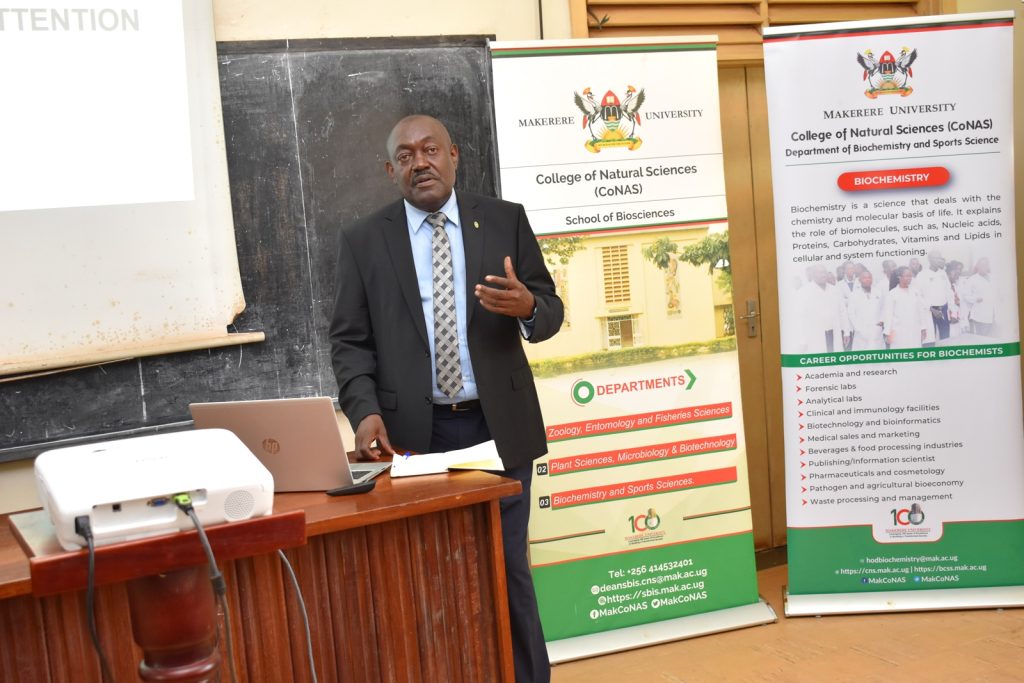
During his presentation, Prof. Tugume appealed to government to support and promote skilling programmes, noting that there are many people who have not had an opportunity to acquire University education but are doing wonders because of the skills attained from vocational training.
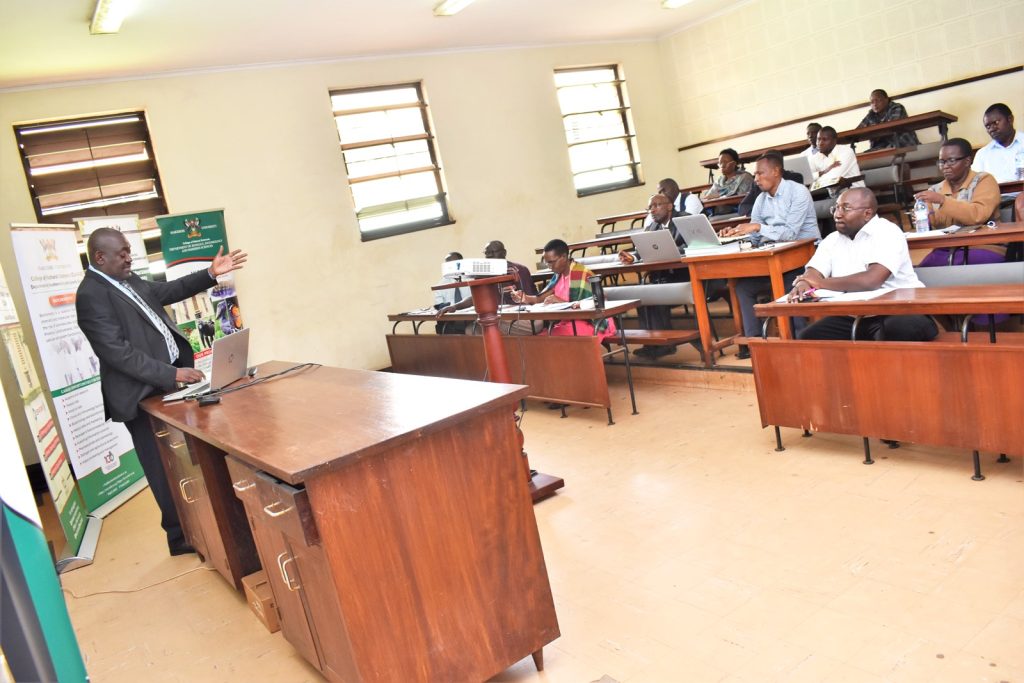
At the same meeting, Dr Kubiriza presented the research activities at the College, specifically in the Department of ZEFS, whereas Mr. Paul Mwambu, Commissioner in charge of Crop Inspection and Certification at MAAIF narrated how his study of the Bachelor of Science programme had exposed him enormous employment opportunities.
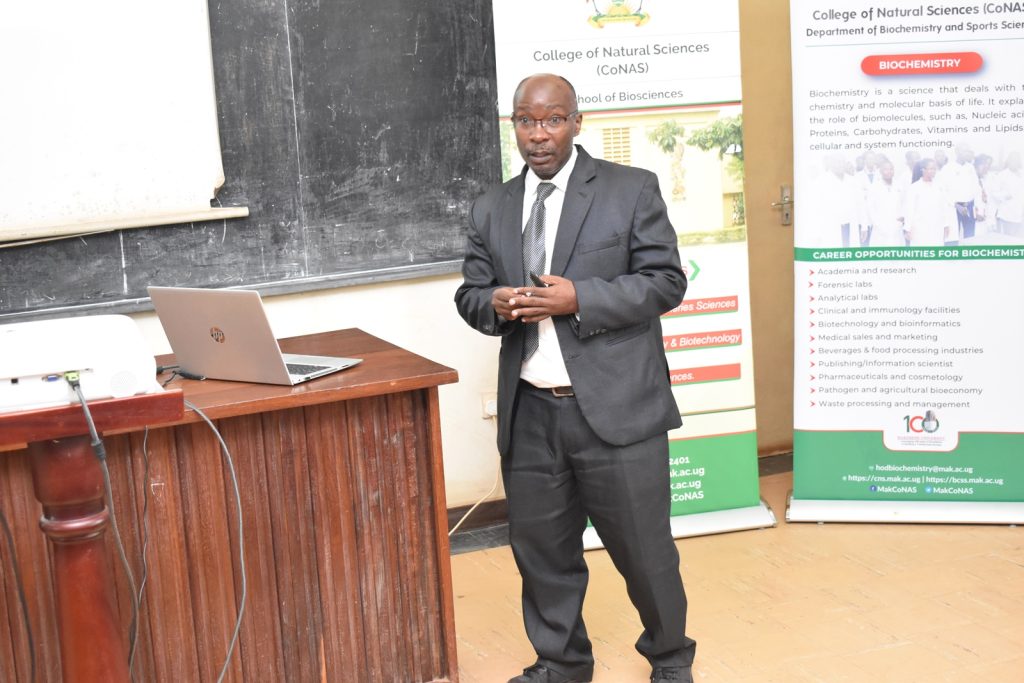
During the engagement, the secondary school teachers shared the challenges they experience and brainstormed on strategies that can be used to demystify the negativity about the Bachelor of Science programme. They also shared ideas on how to improve performance in subject of biology, emphasizing the need to review the syllabus and to retool the teachers. “The syllabus is so wide and this could be one of the lead causes of poor performance in the subject,” Prof. Tugume noted.
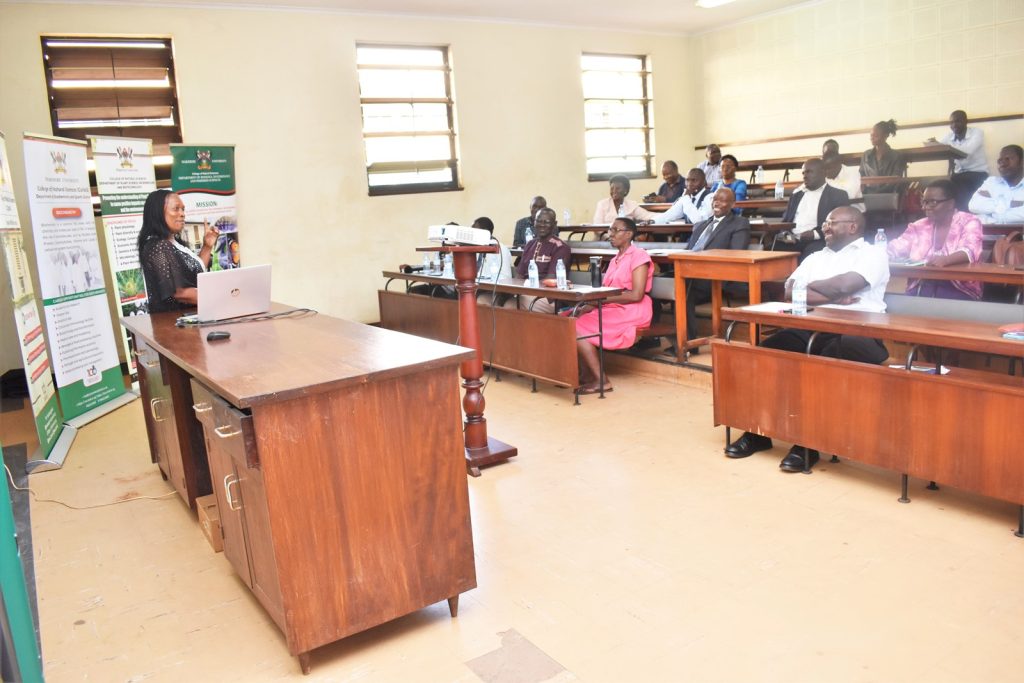
In his remarks, the Principal of CoNAS, Prof. Winston T. Ireeta emphasized the importance of career guidance and sharing of resources to improve performance. He pledged the College support towards secondary school career guidance programmes and retooling of teachers.
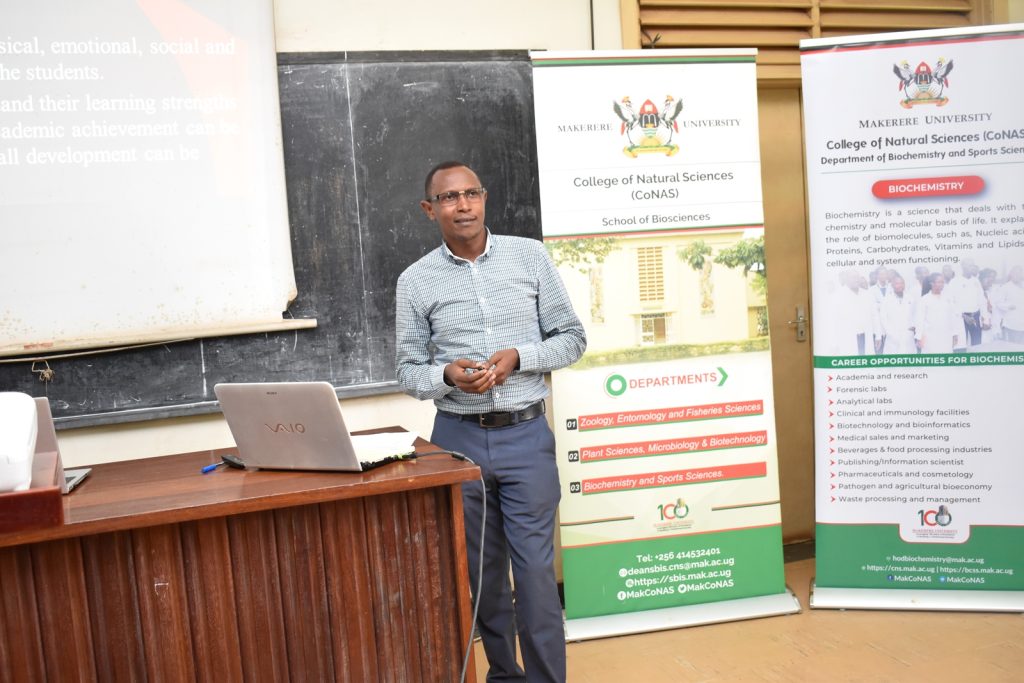
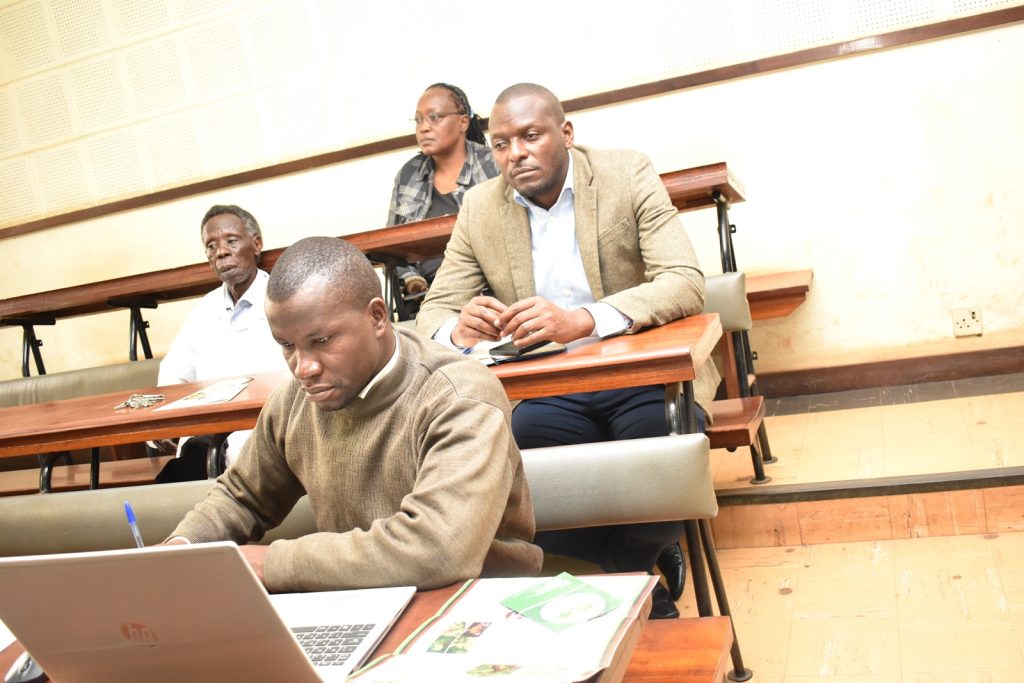
You may like
-


Mak News Magazine: February 2026
-


Mak 76th Graduation Ceremony: CoNAS Presents 16 PhDs & Best Performing Male Student in the Sciences
-


Medical graduates urged to uphold Ethical values
-


CAES Presents Overall Best Performing Student in the Sciences & a Record 28 PhDs at the 76th Graduation Ceremony
-


Graduation marks the next phase of accountability, graduates told
-


Over 9,200 to graduate at Makerere University’s 76th Graduation
Natural Sciences
Mak 76th Graduation Ceremony: CoNAS Presents 16 PhDs & Best Performing Male Student in the Sciences
Published
4 days agoon
February 25, 2026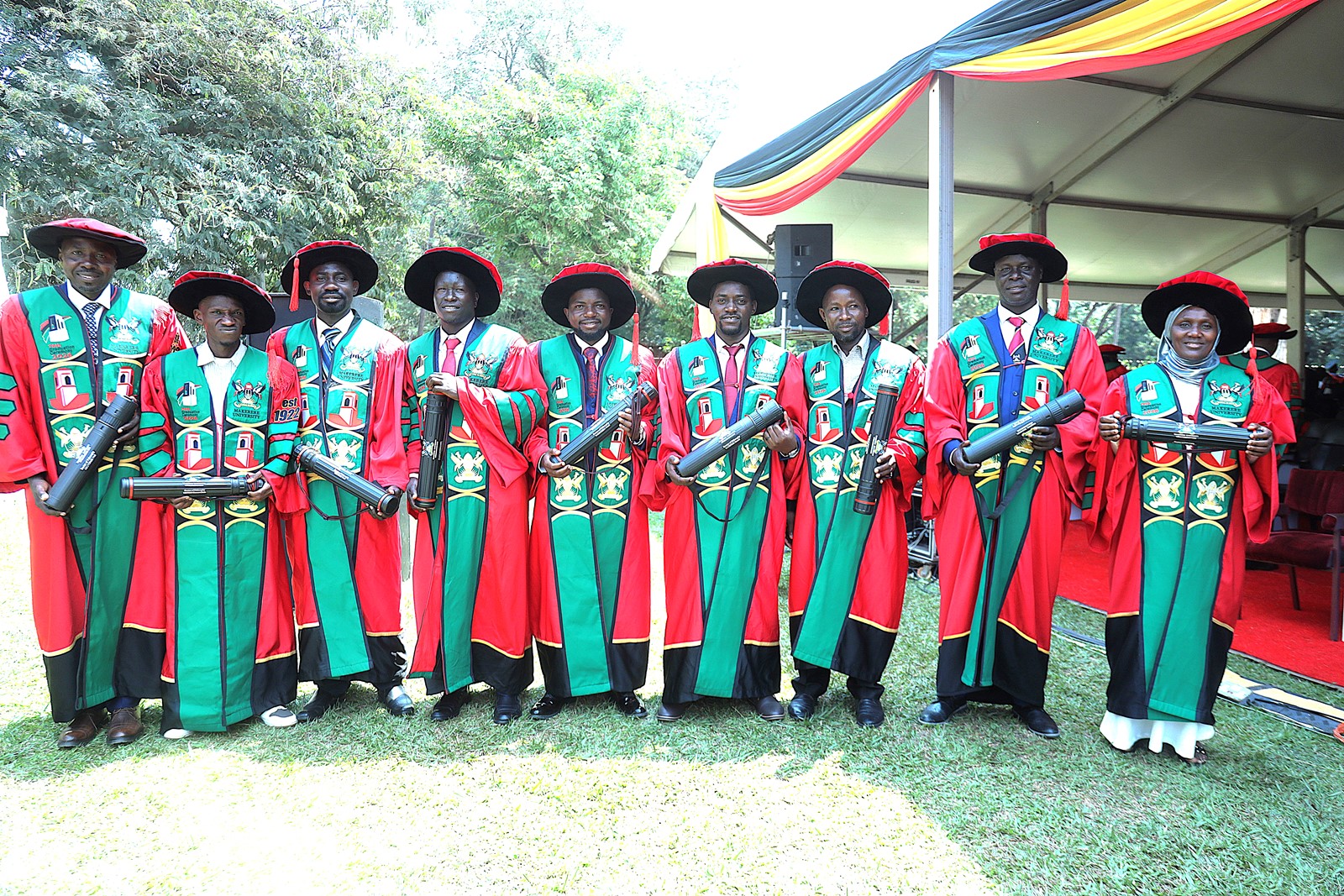
The College of Natural Sciences (CoNAS) presented 269 students for the award of degrees of Makerere University at the 76th graduation ceremony. Of these, 16 graduated with PhDs (4 female and 12 male), 83 with Masters (27 female and 56 male), and 170 with Bachelor’s degrees (45 female and 125 male). The College also presented the Best Performing male student in the sciences. Simon Mungudit graduated with a CGPA of 4.76 in the Bachelor of Science in Petroleum Geoscience and Production. The PhD graduates included; AfazalI Zabibu, a Lecturer at the College of Business and Management Sciences (CoBAMS); Akuyenze Paul, Kawuma Carol, Mutiso Duncan Chalo, Nabiyonga Lydia, and Osinde Cyprian (Plant Sciences, Microbiology and Biotechnology); Batte Hebert, Katende Ronald, and Namugera Frank (Mathematics), Chaciga Jimmy, Tusiime Swaleh, and Komaketch Ignatius (Physics), Kinyua Mbuci, Sekandi Peter, and Shehu Zaccheus (Chemistry), and Nakiyende Herbert (Zoology, Entomology, and Fisheries Sciences).
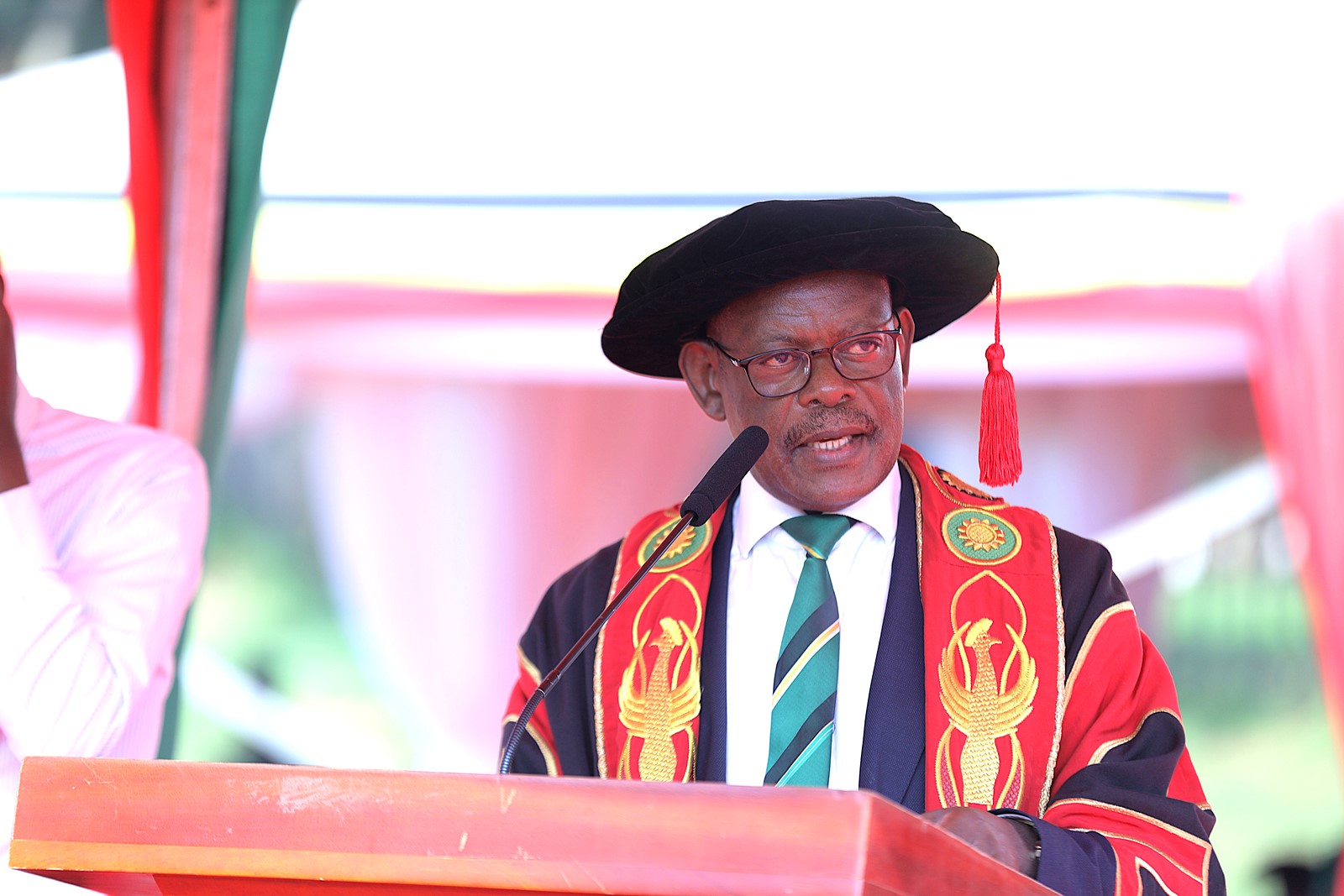
On the second day of the four-day graduation ceremony, which began on 24th February 2026, three colleges presented students for the award of degrees and diplomas of Makerere University. These included CoNAS, the College of Health Sciences (CHS), and the College of Veterinary Medicine, Animal Resources and Biosecurity (COVAB).
Overall graduation Statistics
During the course of the 76th graduation ceremony, a total of 9,295 students will graduate with degrees and diplomas of Makerere University. Of these, 4,262 (46%) are female and 5,033 (54%) are male. A total of 213 students will graduate with PhDs, the highest number in the history of the University. 2,503 will graduate with Masters degrees; 6,343 with Bachelor’s degrees; 206 with postgraduate diplomas, and 30 with Diplomas.
Postgraduates constituted 31.4% of the total number of graduands.
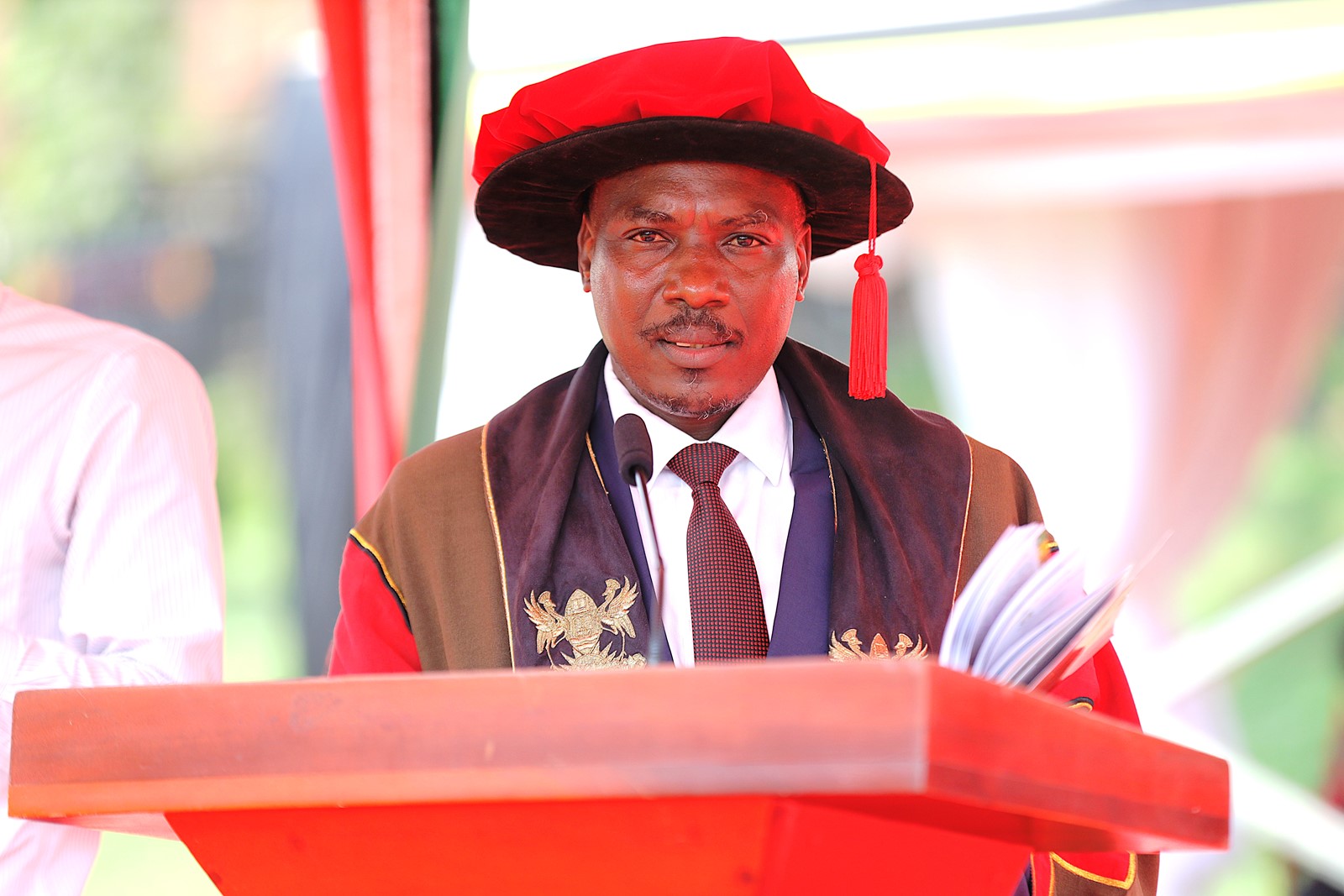
Vice Chancellor’s Remarks
In his remarks, Vice Chancellor Prof. Barnabas Nawangwe commended CoNAS for its transformative research initiatives that are positively impacting communities, highlighting the NutriFishPlus Project, INNOECOFOOD Project, and a project to conserve medicinal plants in Eastern Uganda. Funded by the International Development Research Centre (IDRC) and Australian Centre for International Agricultural Research (ACIAR) under the Cultivate Africa’s Future Fund Phase II, the NutriFishPlus seeks to scale up fish processing technologies and empower fishing communities in Uganda.
The EU-funded INNOECOFOOD Project is transforming food production in Uganda. Through eco-innovative, climate-smart systems, the project aims to improve nutrition, protect the environment, and create jobs- especially for youth and women. Central to this effort are solar- and wind-powered ECOHUBs. These innovative centres use AI and IoT technology to support sustainable fish farming, monitor water quality, reduce losses, and increase yields.
Meanwhile, researchers from the Department of Plant Sciences, Microbiology, and Biotechnology, under the leadership of Dr. Patience Tugume, are spearheading efforts to conserve medicinal plants in Namutumba District. To date, 174 plant species have been documented, with ongoing assessments of threats from unsustainable harvesting. These plants play a vital role in treating malaria, diabetes, hypertension, and certain cancers.
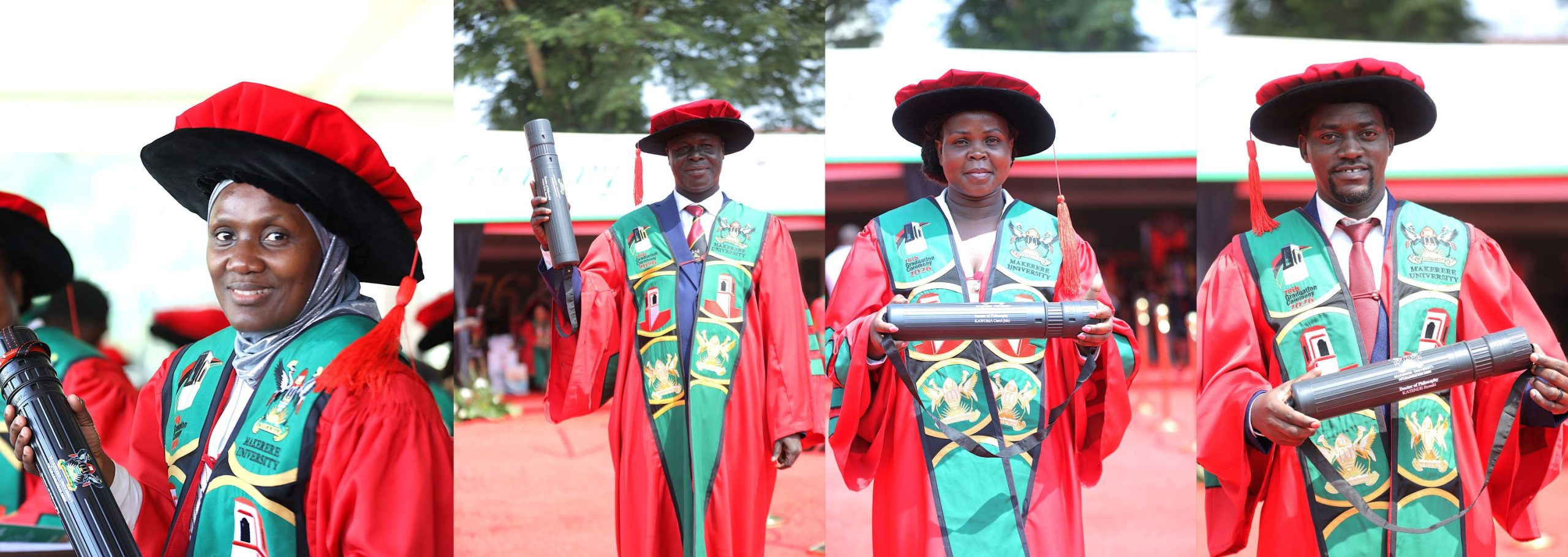
Efforts to Transform Makerere into a Research-led University
In his address, the Vice Chancellor reaffirmed the University Management’s commitment to transforming Makerere into a research-led institution. He expressed gratitude to the Government of Uganda for securing a USD 162 million loan from the Korea Exim Bank to support critical infrastructure development at the University. The funding will facilitate the construction of new facilities for the School of Medicine, School of Dentistry, School of Engineering, the Science and Technology Centre, and the completion of the School of Computing and Information Sciences- an unprecedented development in the University’s history.
The Vice Chancellor further highlighted the pivotal role of the Makerere University Technology and Innovations Centre (MUTIC) in advancing incubation and commercialization. “The Centre offers mentorship, business development training, intellectual property support, and industry linkages to help transform research outputs into viable enterprises.” To date, eleven spin-off companies have been established by students and staff, while the University’s Innovation Pod (UniPod) has incubated more than 100 projects in the past year. The short-term target is to establish 50 spin-off companies annually, with plans to double that number in the long term.
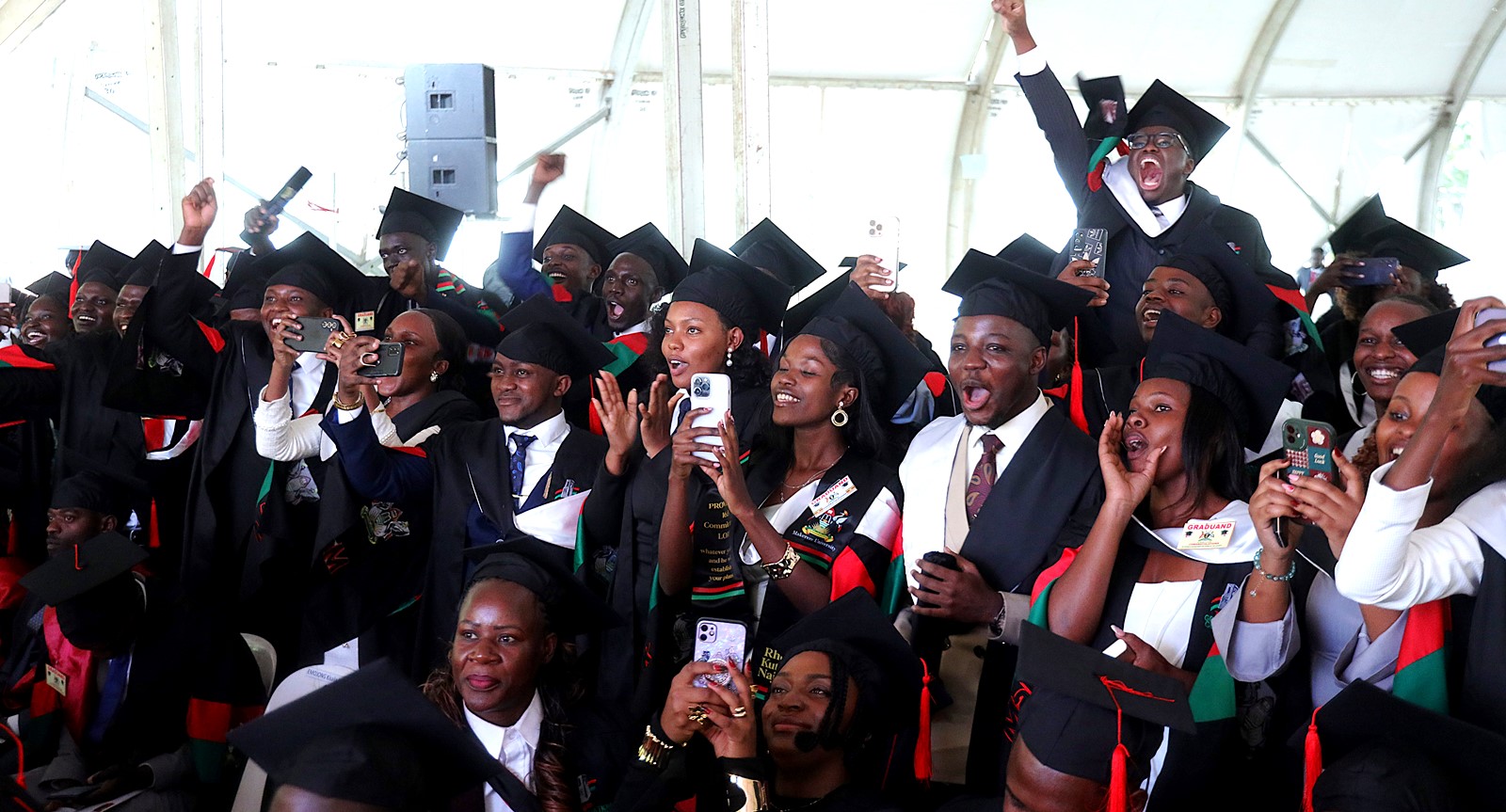
Prof. Nawangwe acknowledged the government’s contribution through the Makerere University Research and Innovations Fund (MakRIF). Through this initiative, the government has supported over 1,400 high-impact research and innovation projects, and facilitated the training of more than 200 PhD students.
In partnership with the Science, Technology and Innovation Secretariat in the Office of the President, the University has also introduced awards to recognize outstanding researchers and innovators. These include the Research Excellence and Innovation Commercialization Awards. “The Innovation Commercialization Award underscores the institution’s commitment to translating research into practical products, services, and technologies that address real-world challenges and support national development,” the Vice Chancellor noted.
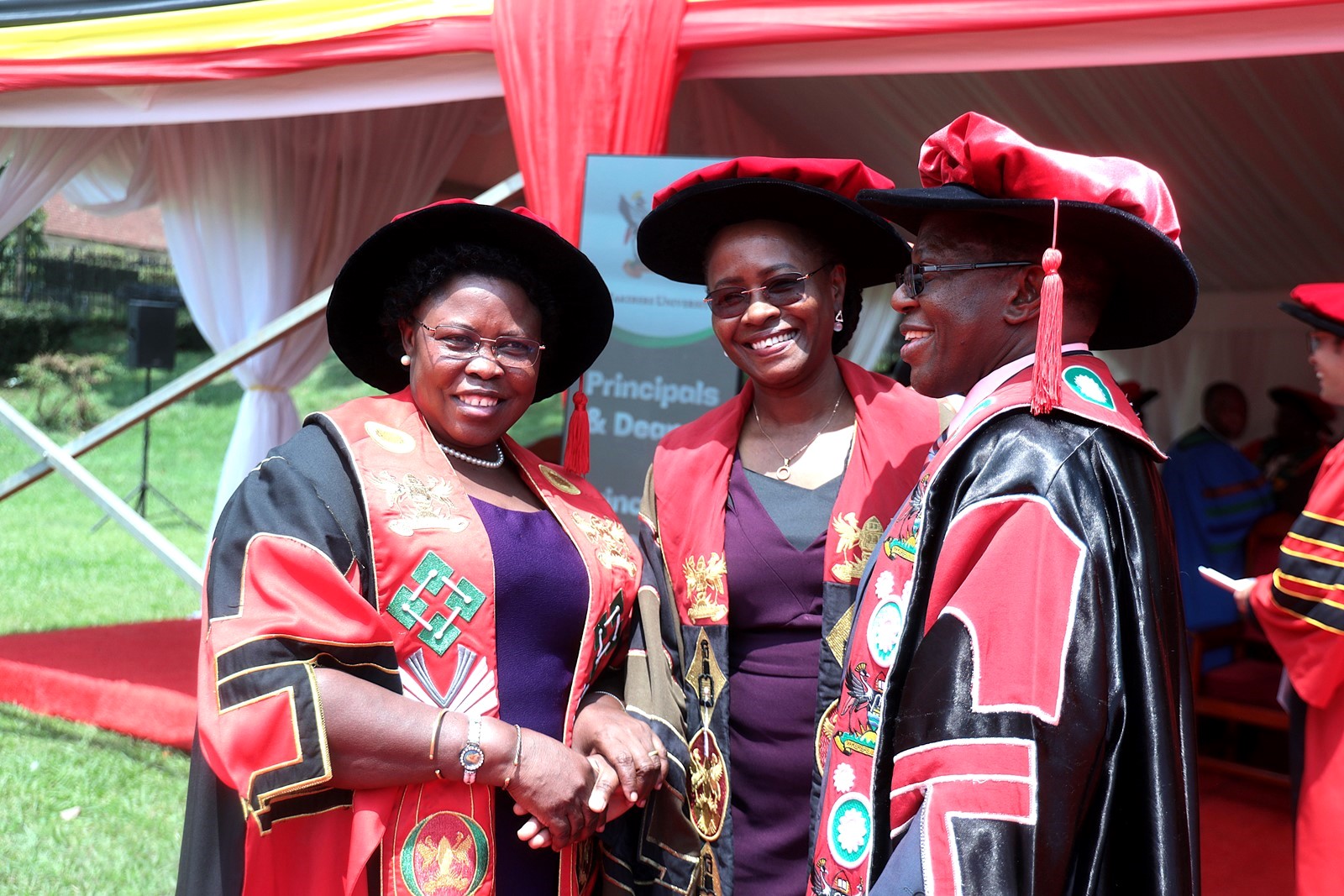
Vice Chancellor’s Message to the graduates and Appreciation to the Partners
The Vice Chancellor urged the graduates to uphold dignity, humility and diligence as they leave the gates of Makerere University, and begin the next chapter of their lives. “As you step out of the gates of Makerere, remain proud of your alma mater and serve as good ambassadors wherever you go. Use the knowledge acquired from one of the world’s leading universities to improve yourselves, your families, communities, country, and humanity at large.”
He equally appreciated the parents and guardians for supporting the students, and the development partners who have extended research funding to the university over the years. These include the Mastercard Foundation, the European Union, NORAD, Sida, IDRC, KOICA, DAAD, NIH, CDC, USAID, the Wellcome Trust, KfW, IUCEA, RUFORUM, ARUA, the PLUS Alliance, WUN, AAUN, AAP, the Madhvani Foundation, and the Government of Uganda through the Higher Education Students Financing Board. “We are equally grateful to the Embassy of China, the Chinese Chamber of Commerce, various Government Ministries, State House, private sector players, and many other partners whose generous support continues to advance our mission.”
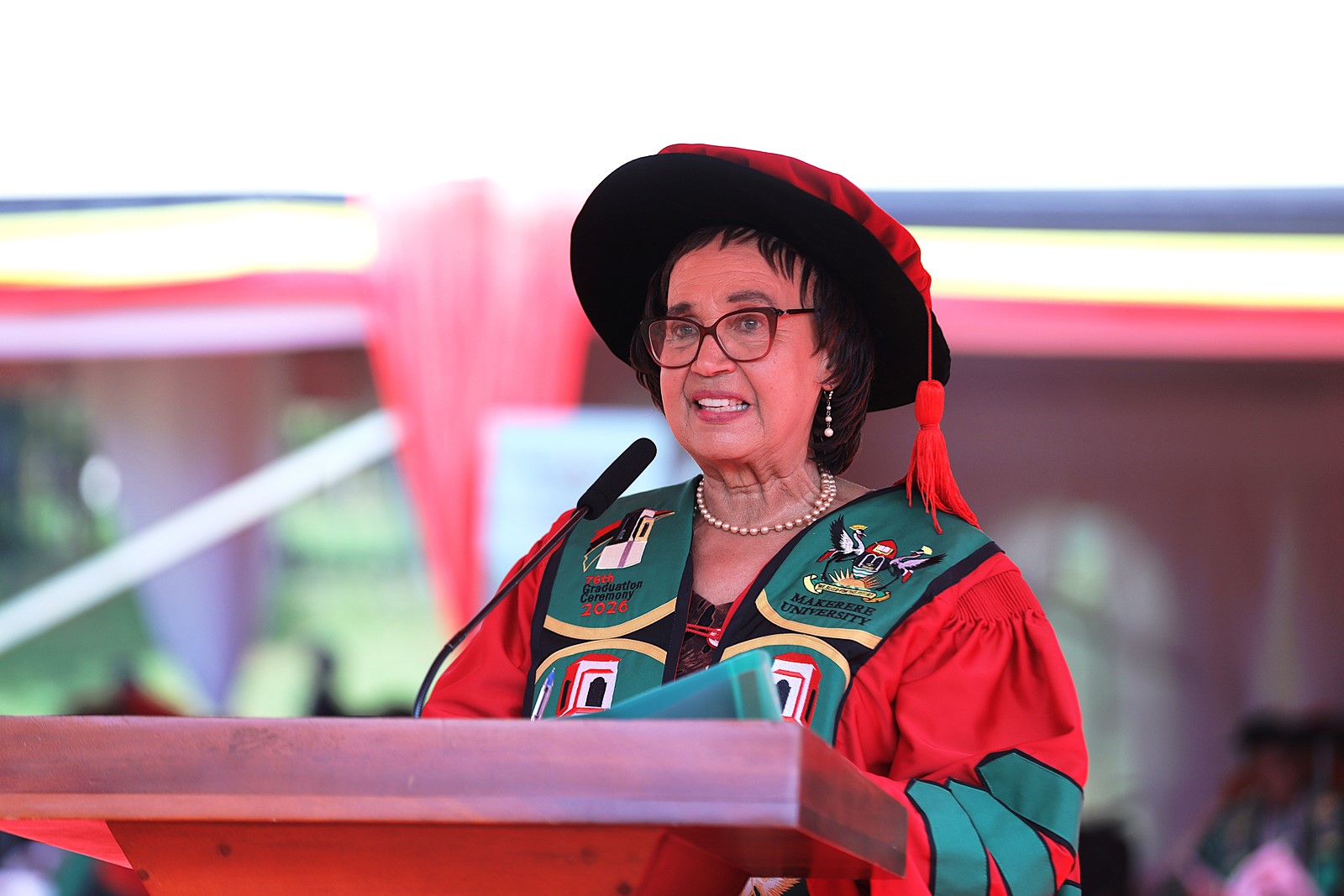
Remarks by the Chancellor
Makerere University Chancellor, Hon. Dr. Crispus Kiyonga congratulated the graduands on their achievement and commended the staff, parents, and partners for their invaluable support. He expressed gratitude to the Government for its steadfast commitment to advancing research through the annual UGX30 billion allocation to the Makerere University Research and Innovations Fund.
He underscored the University’s contribution to Uganda’s Fourth National Development Plan (NDP IV) through advancements in science, technology, and innovation, and encouraged graduates to embrace entrepreneurship amidst an increasingly competitive job market. He further called for enhanced research funding, stronger private sector collaboration, and deeper community engagement to accelerate national development.
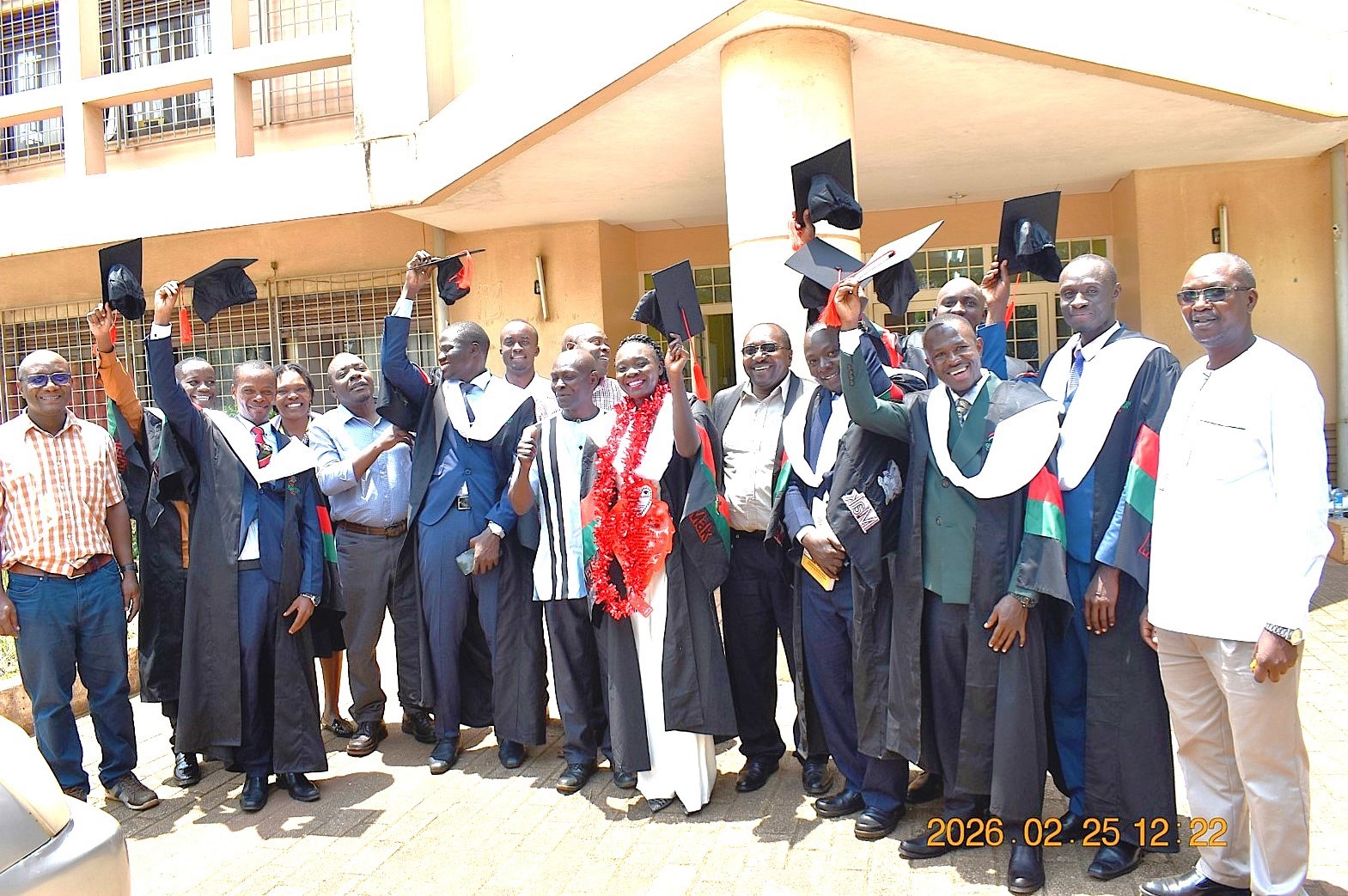
The Minister of Education and Sports
In her remarks, the Minister of Education and Sports, Hon. Janet Kataaha Museveni, represented by the Minister of State for Primary Education, Hon. Dr. Joyce Moriku Kaducu commended Makerere University for its pivotal role in driving national development. She highlighted the University’s contribution to knowledge generation and societal transformation. “The impressive number of PhD graduates this time round is testimony to the robust research output and academic excellence.” The Minister emphasized the importance of maintaining and enhancing academic standards, urging the University Administration to rigorously implement and uphold quality assurance measures that guarantee continued excellence of its programmes and global competitiveness of its graduates.
Implementing the Competence-based Education and Training
The Minister reiterated a key directive for all institutions of higher learning to prepare for the full implementation of Competence-Based Education and Training by July 2027. “This reform represents more than a policy shift. It signals a fundamental transformation in how graduates are prepared, with greater emphasis on practical skills, innovation, and problem-solving.” She urged the Vice Chancellor and his team to lead in curriculum reform, staff development, and infrastructure enhancement to ensure the successful rollout of competence-based education.
The Minister further urged the university management to ensure that all satellite campuses are fully accredited and that their programmes meet the same standards and relevance as those offered at the main campus.
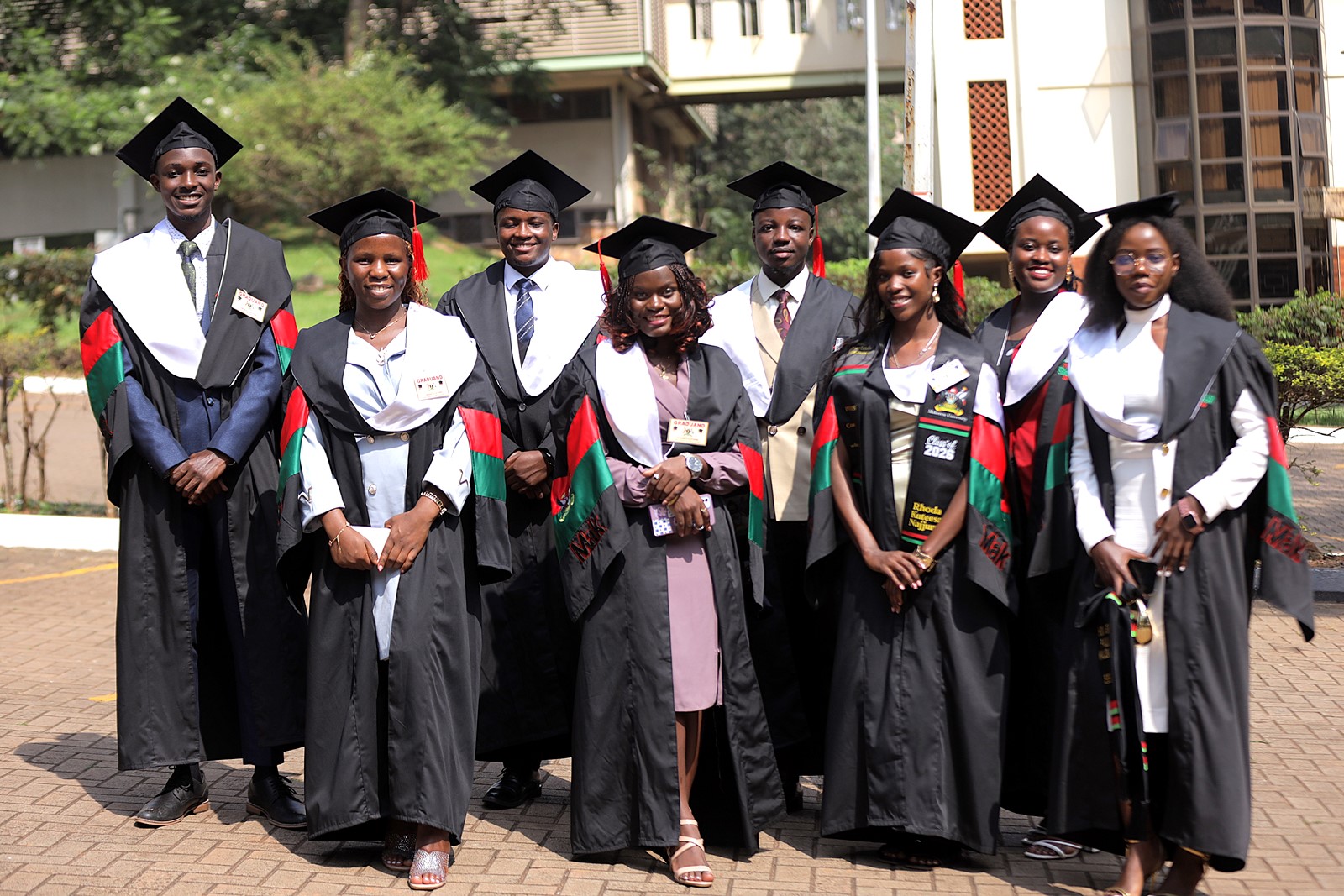
Commencement Lecture by Dr. Maggie Kigozi
At the ceremony, distinguished alumnus, and Chair of the Makerere University Endowment Fund, Dr. Maggie Kigozi delivered a compelling commencement lecture, reflecting on her journey since earning her first degree in 1976. She shared three guiding messages for the new alumni as they embark on their professional paths.
Dr. Kigozi emphasized that power comes with responsibility, urging graduates entering the health and life sciences to combine their expertise with ethical leadership and financial literacy to create sustainable, compassionate practices. She highlighted the global opportunities that a Makerere degree offers, explaining how her education empowered her to make meaningful contributions across Uganda, Kenya, and Zambia.
She also encouraged the graduates to view failure as a stepping stone to excellence, noting that mistakes are not setbacks, but lessons. She underscored the importance of balance, reminding graduates to manage their personal and professional responsibilities realistically.
Research Excellence Awards
During the graduation ceremony, Makerere University recognized the top researchers and innovators from the 10 Colleges. At CoNAS, Mr. Omara Timothy from the Department of Chemistry scooped the Overall Top Research and Early Career Researcher Awards, whereas Dr Godwin Anywar from the Department of Plant Sciences, Microbiology, and Biotechnology won the Mid-Career Researcher Award.
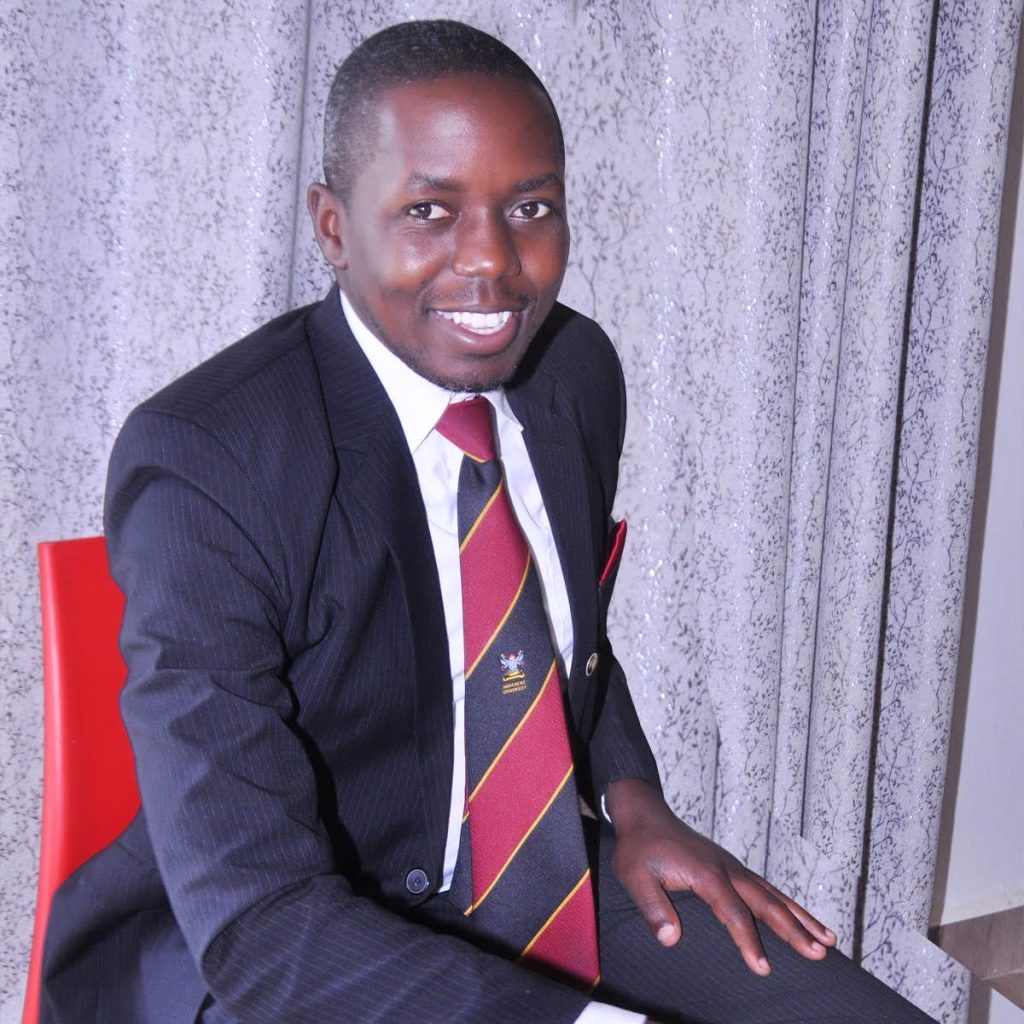
More about Simon Mungudit, the best performing male science student – https://cns.mak.ac.ug/simon-mungudit-maks-best-male-science-student-this-year-rising-star-in-petroleum-geoscience/
Natural Sciences
BOKU University Charts New Collaboration Strategies with Mak’s Department of Zoology, Entomology & Fisheries Sciences
Published
2 weeks agoon
February 12, 2026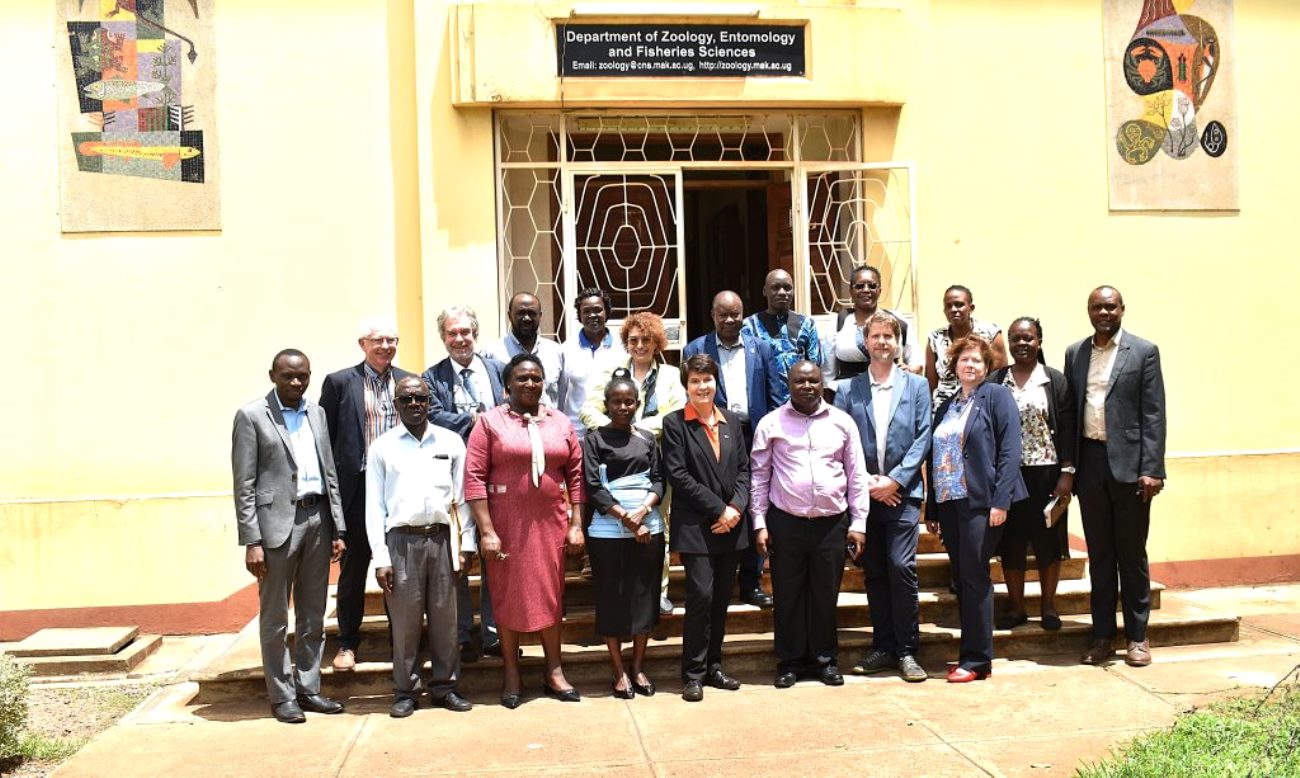
The Department of Zoology, Entomology and Fisheries Sciences at Makerere University on 11th February 2026 hosted a high-level delegation from the University of Natural Resources and Life Sciences, Vienna (BOKU), to discuss strategies for future collaboration in a partnership that has spanned five decades.
The meeting followed the BOKU team’s participation in the opening ceremony of the Promotion of Hybrid Renewable Energy Systems towards Electricity Access in Uganda project, an initiative designed to expand access to decentralized renewable energy solutions. The project, implemented under CEDAT, is funded by the Austrian Partnership Programme in Higher Education and Research for Development (APPEAR), a programme of the Austrian Development Cooperation administered by OeAD.
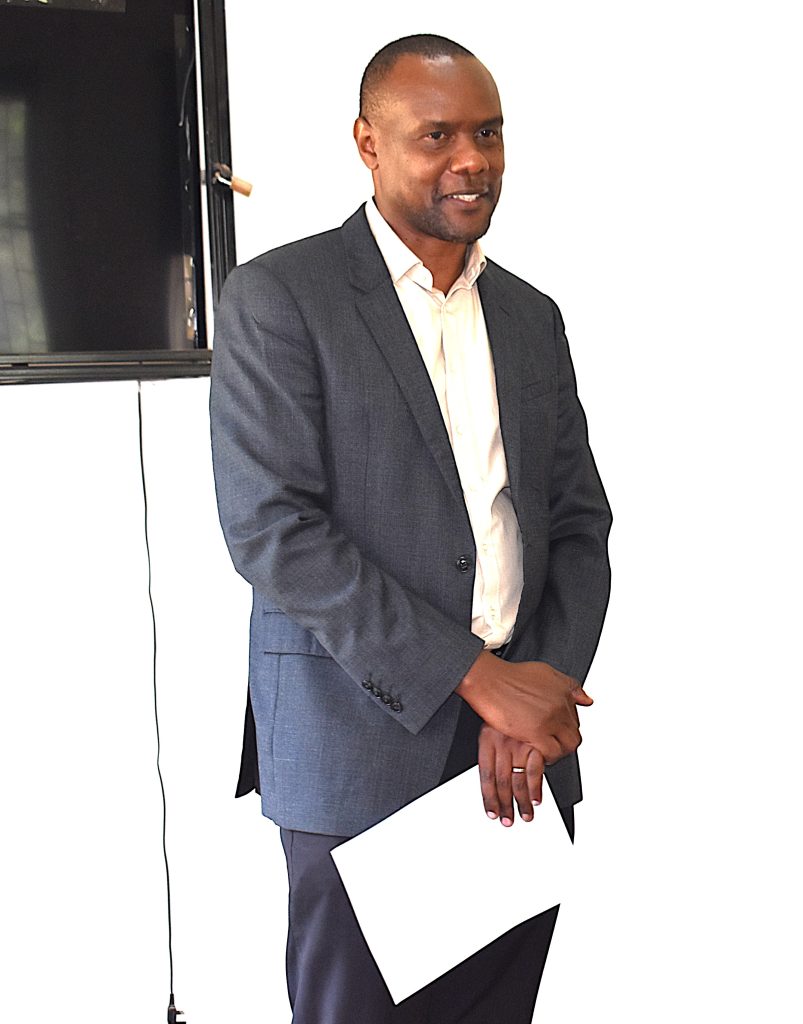
Discussions at the Department of Zoology, Entomology and Fisheries Sciences focused on deepening and broadening a historic collaboration that has shaped aquatic sciences, fisheries research, and environmental management in East Africa for half a century.
A Partnership Rooted in Limnology
The collaboration between Makerere University and BOKU traces its origins to 1975 with the establishment of the International Post-Graduate Course in Limnology (IPGL) by the late Heinz Löffler (1927-2006). The eight-month UNESCO-supported course, hosted in Lunz, Mondsee and Vienna, was designed to train scientists from developing countries in limnology – the study of inland waters.
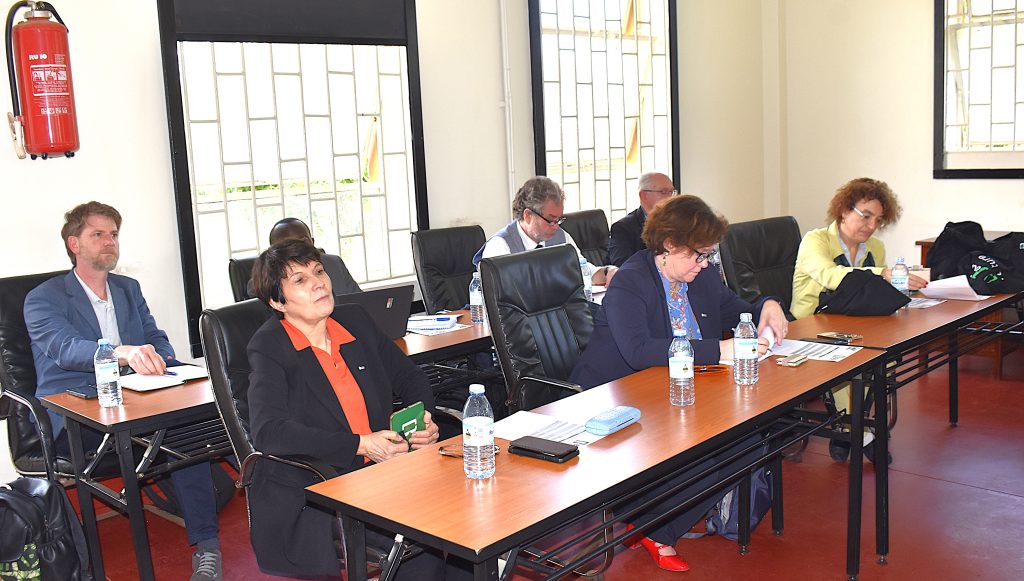
In 1976, Dr. Gwahaba James Joshua of Makerere’s Department of Zoology, Entomology and Fisheries Sciences became the first beneficiary from the university. Two years later, Boniface Makanga attended the UNESCO course and went on to initiate a Marine Practical Course to the Indian Ocean in 1993. That programme has since grown into over 30 years of annual field activity in Mombasa, benefiting undergraduate and master’s students and strengthening hands-on marine science training at Makerere.
Over time, IPGL evolved into a vibrant International Joint Degree Master’s Programme in Limnology and Wetland Management. The programme has built capacity for 123 aquatic professionals – 56 female and 67 male, including 20 from Makerere University. Notably, 11 dedicated limnologists are currently based within the Department of Zoology, Entomology and Fisheries Sciences, a testament to sustained capacity development.
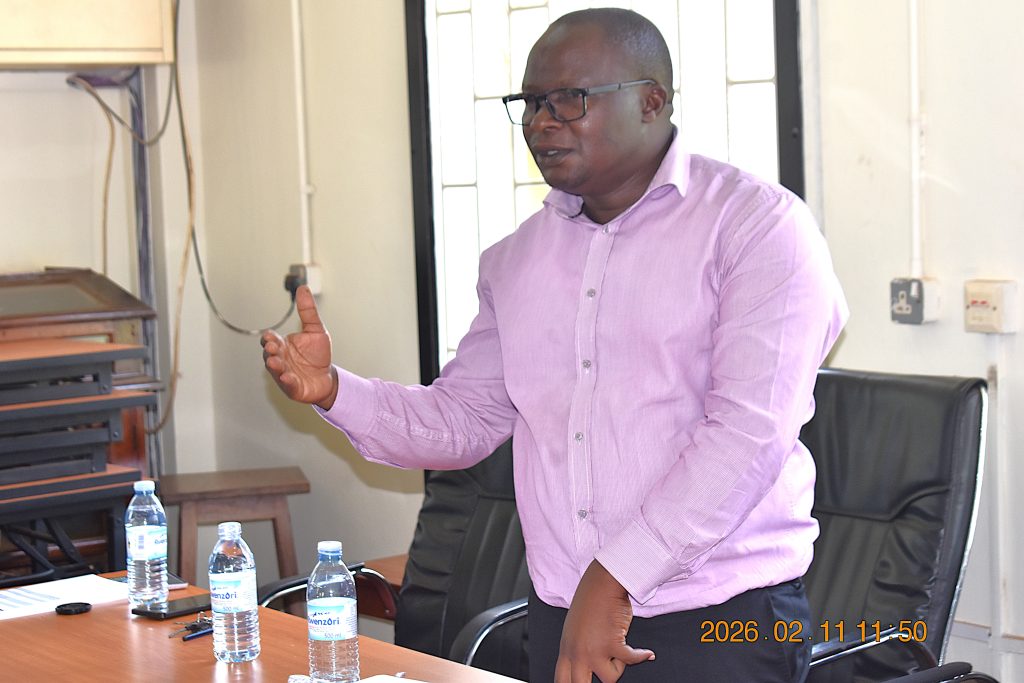
Expanding into Fisheries, Aquaculture and Regional Networks
The Mak-BOKU collaboration progressively expanded beyond limnology into fisheries, aquaculture, and broader freshwater ecosystem management.
Among the key initiatives was STRECAFISH (2015-2018), which focused on strengthening regional capacity in fisheries and aquaculture research and training to improve food security and livelihoods in Eastern Africa. The programme adopted a modular approach, trained 28 MSc students, supported five full PhDs and 11 MSc research projects, and facilitated 14 staff exchanges.
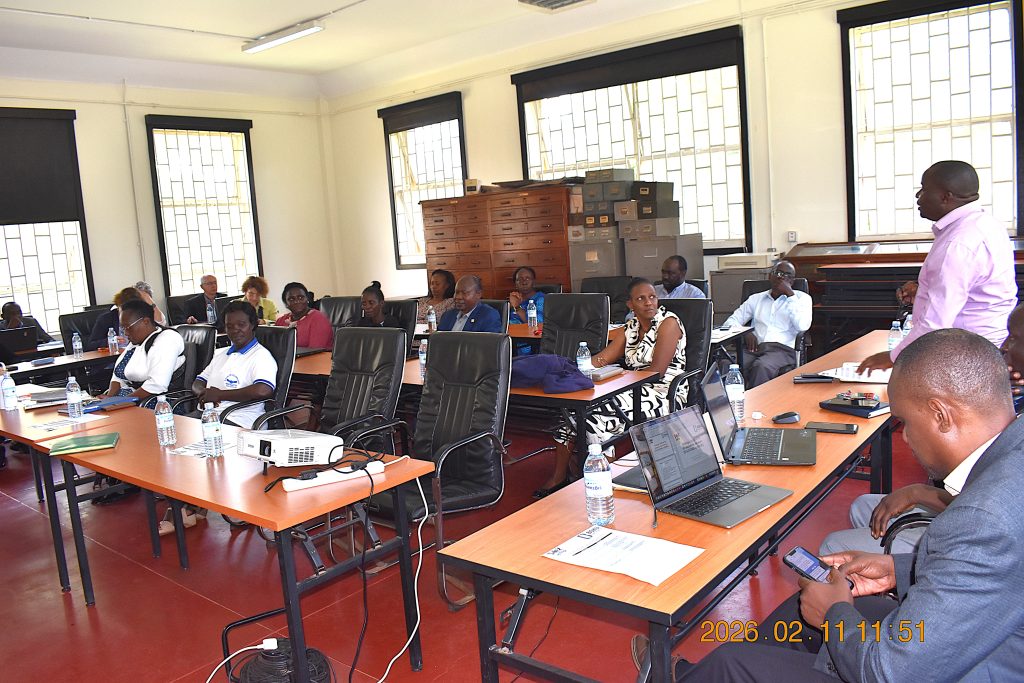
This momentum continued under COTRA (Collaborative Training in Fisheries and Aquaculture in East, Central and Southern Africa) from 2017 to 2023. COTRA enhanced staff and student mobility, supporting 24 master’s students (six credit-seeking and 18 degree-seeking), 12 doctoral candidates (four credit-seeking and eight degree-seeking), and 10 faculty and administrative staff. The initiative emphasized fit-for-purpose PhD training in aquaculture and fisheries to address food security challenges in Sub-Saharan Africa under the ACP-EU Cooperation Programme in Higher Education (EDULINK II), in partnership with institutions such as Lilongwe University of Agriculture and Natural Resources.
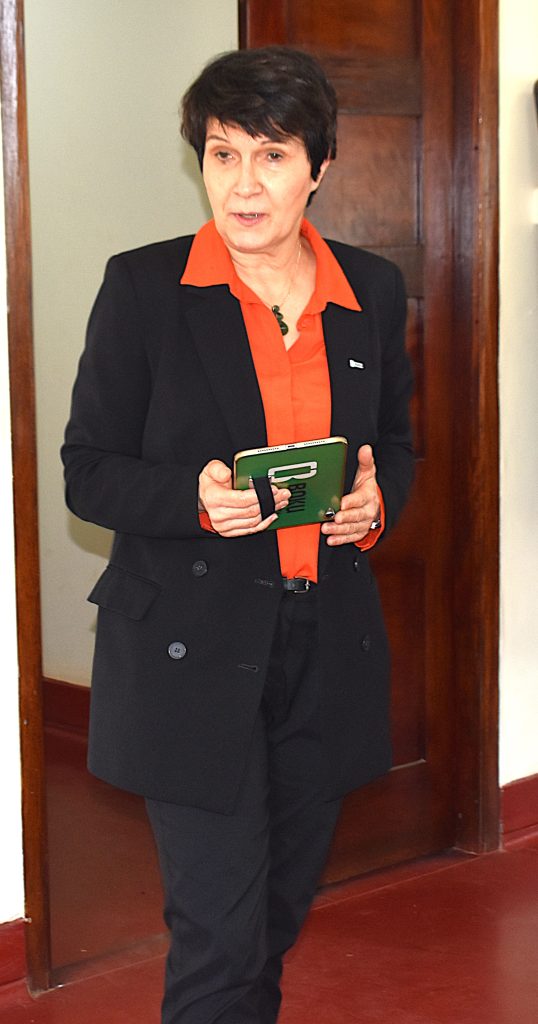
Ongoing collaborations include the Erasmus+ KA1 Learning Mobility of Individuals programme (2021-2027), which connects BOKU and Makerere with Egerton University, Kyambogo University, Addis Ababa University, Bahir Dar University and others. Additional joint initiatives include:
FreshNet: A higher education and research network for sustainable management of freshwater ecosystems in Eastern Africa, involving BOKU, Egerton University, Addis Ababa University, Bahir Dar University, EIAR and IHE Delft.
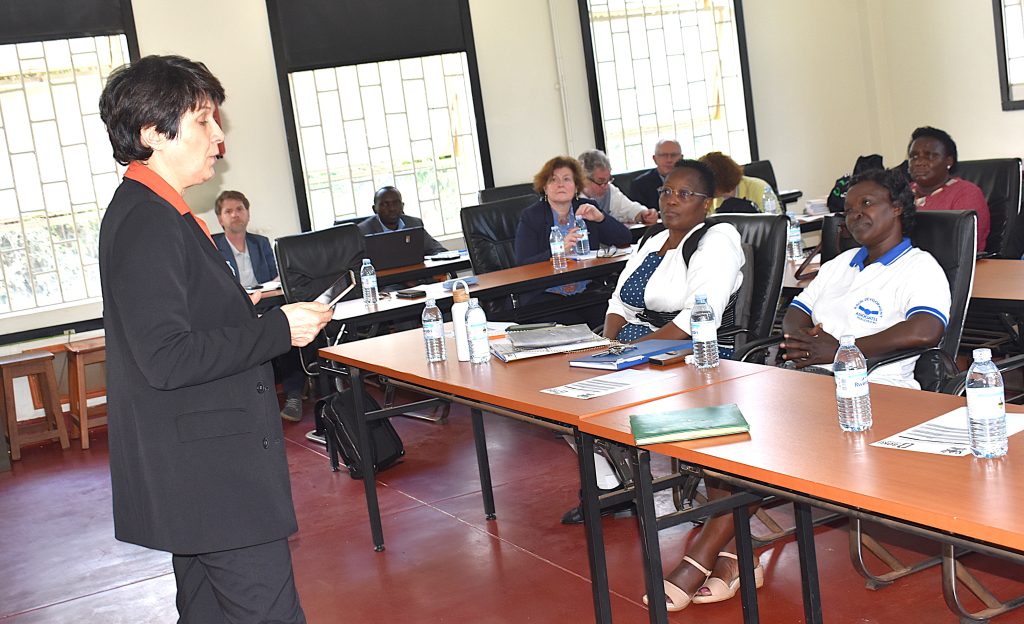
SWAQ-Uganda (2021-2026): Sustainable water quality management supporting Uganda’s development ambitions, implemented with IIASA, BOKU and Uganda’s Ministry of Water and Environment.
BIOGOLD (2024–2027): A project on biosorption for sustainable small-scale gold mining in Uganda, involving Kyambogo University, Makerere University, Gulu University, the University for Continuing Education and the University of Pretoria.
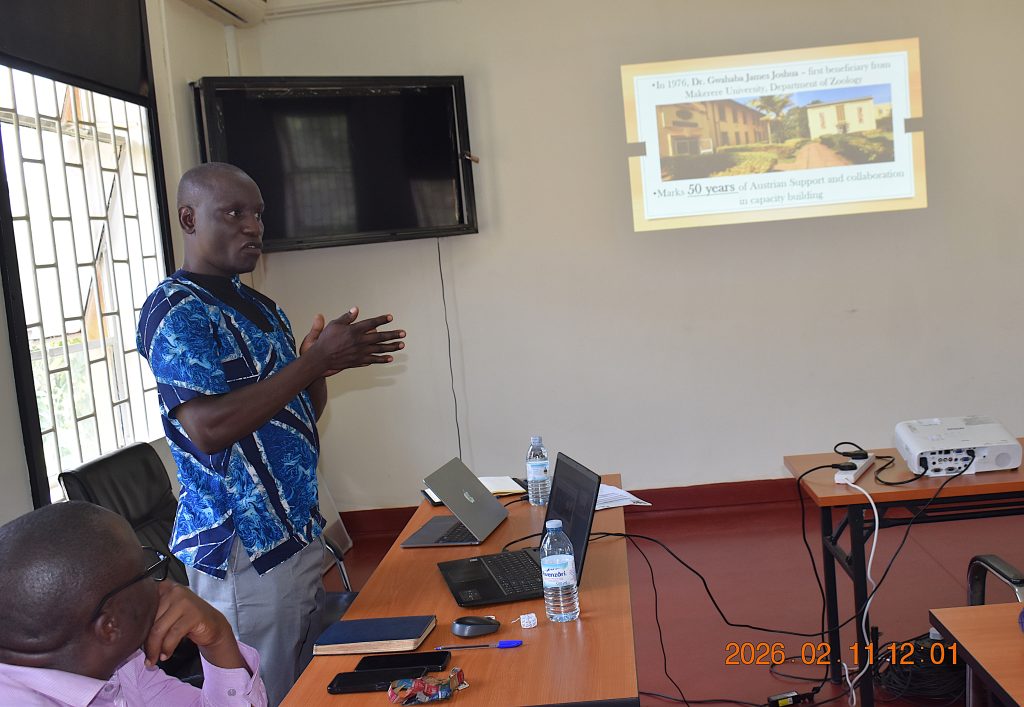
Collectively, these initiatives underscore a 50-year-old partnership that has built critical human resources at MSc and PhD levels in aquatic ecosystem management, conservation and utilization. The collaboration has also facilitated acquisition of essential research equipment, strengthened administrative capacity in project management, and nurtured a culture of knowledge sharing and innovation.
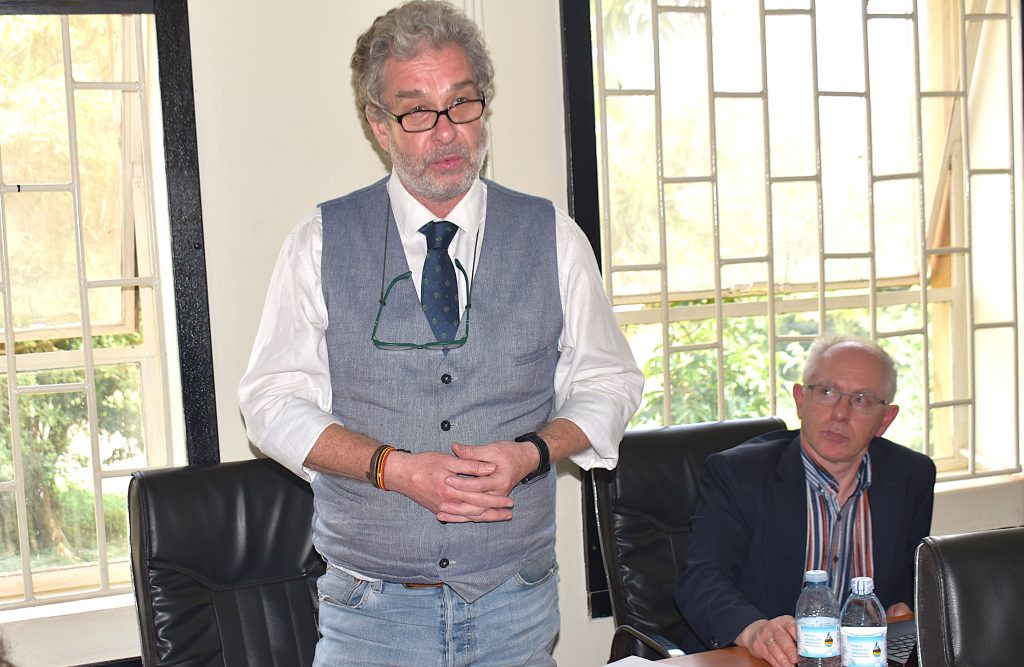
Meeting with the BOKU delegation
The BOKU delegation was led by the Rector, Prof. Eva Schulev-Steindl, a specialist in environmental law, and Vice Rector Assoc. Prof. Doris Damyanovic, an expert in landscape planning. They were accompanied by:
- Mag. Gerold Winkler, Coordinator of the Applied Limnology / Limnology and Wetland Master’s programme;
- Dr. Mathew Herrnegger, BOKU’s Africa Cooperation Country Coordinator and hydrology specialist; and
- Dr. Andreas Melcher, Africa-Uninet Coordinator from BOKU’s Institute for Development Research.
During the discussions with departmental staff, Dr. Akoll presented a detailed account of the partnership’s evolution and achievements, emphasizing its transformative impact on regional training and research capacity.
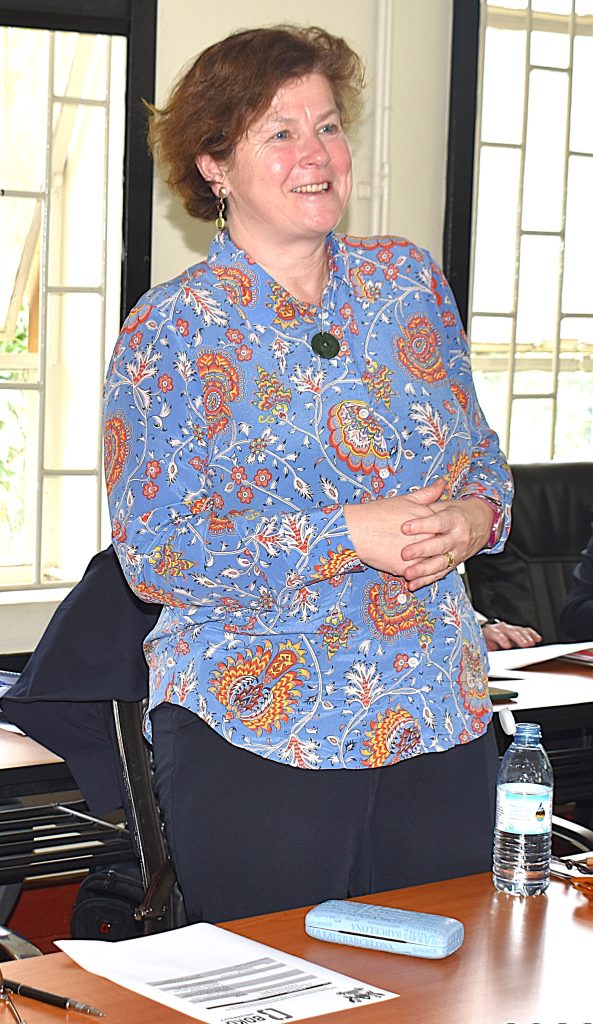
Charting the Next Chapter
As the partnership enters its sixth decade, both institutions are keen to expand into new frontiers. Key areas identified for future collaboration include:
- Enhanced staff and student exchanges;
- Joint research projects and co-publications;
- Introduction of short courses at the Makerere University Biological Field Station, Kibale beyond wildlife studies;
- Research on climate change and its effects on marine and freshwater resources;
- Advancement of basic biological research; and
- Strengthening fisheries research and innovation.
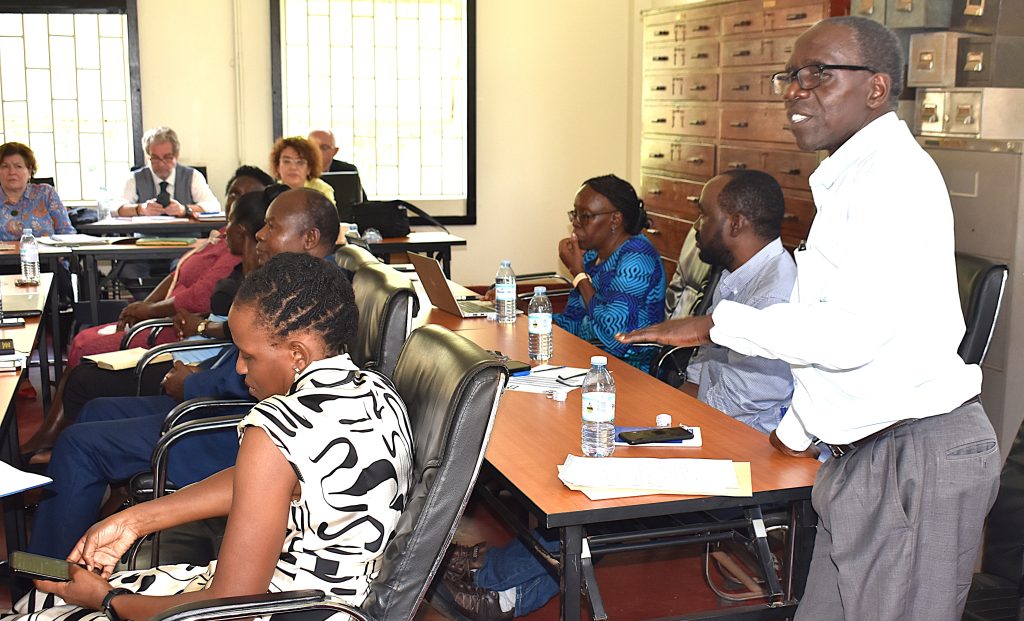
In his remarks, the Head of the Department of Zoology, Entomology and Fisheries Sciences, Dr. Godfrey Kawooya expressed gratitude for the enduring partnership, noting that it has significantly strengthened regional training capacity and supported the education of numerous Makerere staff and students. He added that the collaboration reinforces Makerere’s standing as one of the most collaborative universities globally and aligns closely with its research agenda.
Rector Schulev-Steindl reaffirmed BOKU’s commitment to advancing the longstanding relationship, describing it as a model of North-South academic cooperation built on mutual respect, shared knowledge and tangible impact.
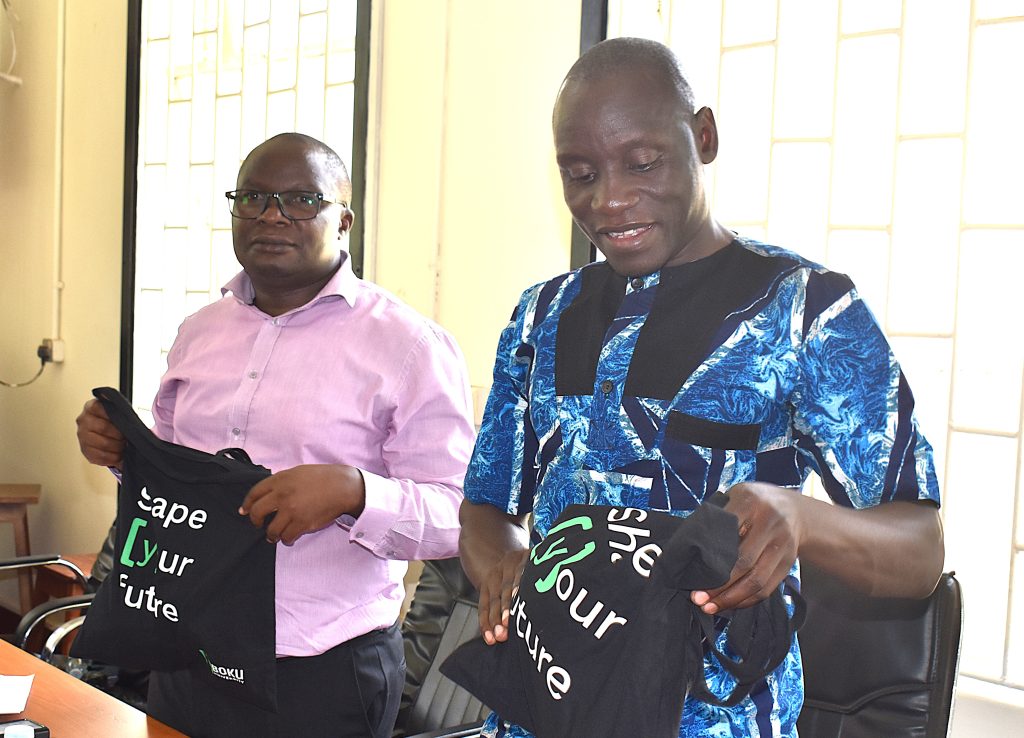
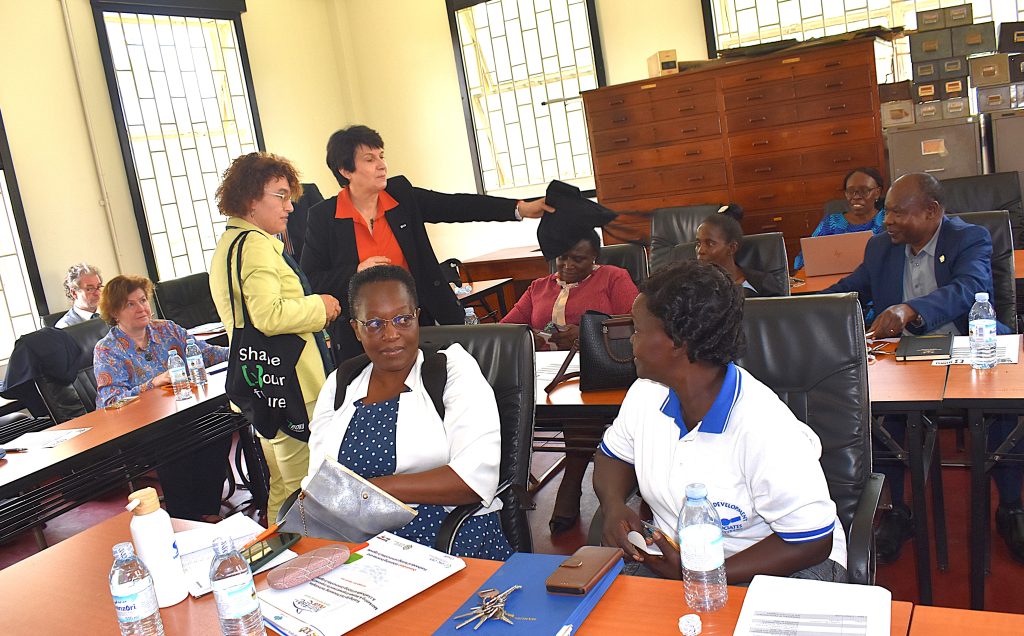
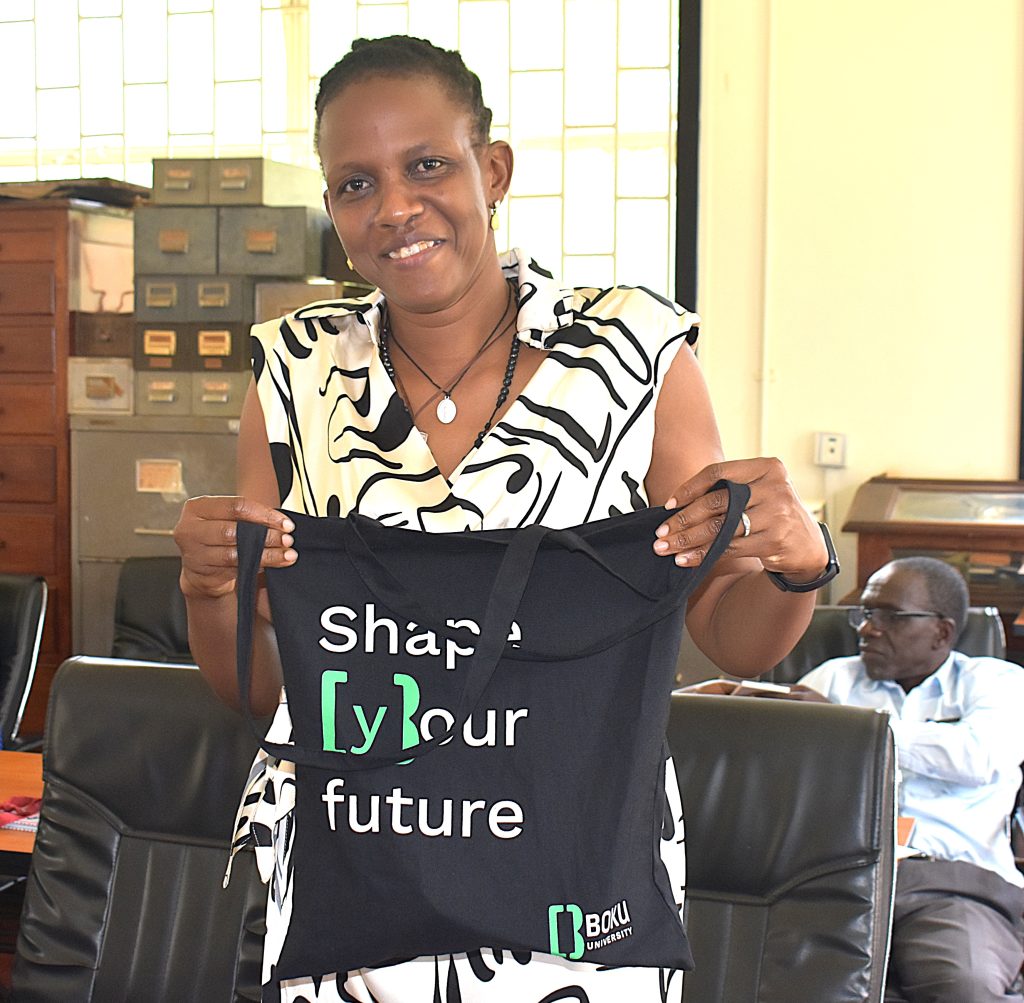
Event pictorial: https://drive.google.com/drive/folders/1HkCCZf_TCPV0V7_ZR2PSVEw1zrEGhZeJ?usp=sharing
Natural Sciences
Simon Mungudit: Mak’s Best Performing Male Science Student & Rising Star in Petroleum Geoscience
Published
4 weeks agoon
February 3, 2026
At just 24 years old, Simon Mungudit from the College of Natural Sciences (CoNAS) has etched his name in the academic history of Makerere University, having emerged as the overall best male student in the Sciences, an achievement earned through perseverance, discipline, and an unrelenting pursuit of excellence.
Mungudit is set to graduate during 76th graduation ceremony scheduled for 24th to 27th February 2026, having attained a CGPA of 4.76 in the Bachelor of Science in Petroleum Geoscience and Production. His academic interests-Reservoir Engineering, Petrophysics, and Drilling-reflect a deep understanding of the subsurface sciences that power modern energy systems.
Early Life and Journey to Academic Excellence
Born to Mr. Owor Thomas, a Game Ranger with the Uganda Wildlife Authority at Murchison Falls National Park, and Ms. Lilly Obewun Grace of Akuru Bridge Village, Nyaravur Sub-County in Nebbi District, Mungudit’s journey to academic excellence began far from the lecture halls of Makerere. At Karuma Primary School, Mungudit scored 12 aggregates in the Primary Leaving Examinations (PLE), setting the pace for his future success. He proceeded to St. Daniel Comboni College, Nebbi, where he attained 14 aggregates in 8 subjects at O’ Level. He then joined Namilyango College, one of the best secondary schools in Uganda, where he studied Physics, Chemistry, and Mathematics (PCM) and scored 19 points, results that secured him government sponsorship to pursue a Bachelor of Science in Petroleum Geoscience and Production at Makerere University.
Gratitude to his mentors and sponsors
Behind these milestones lies a story of humility, gratitude and opportunity. Mungudit credits his parents for supporting his primary and O’ Level education and expresses gratitude to TotalEnergies, which provided a full bursary for his A’ Level studies, covering tuition, upkeep, and medical care. He also acknowledges the Government of Uganda for sponsoring his university education, a factor he says motivated him to excel.
At Makerere, Mungudit thrived in an environment that blended rigorous academics with mentorship. He pays tribute to his lecturers, particularly Dr. Arthur Batte, Head, Department of Geology and Petroleum Studies, for their unwavering commitment to nurturing students and pushing them to excel.
“I always aimed to excel,” Mungudit says. “Together with a few colleagues, we formed a group and held discussions on a daily. This, coupled with a conducive study environment, prayer, and discipline, enabled us to attain excellent grades.”
Dr Arthur Batte describes Mungidit as a humble yet very intelligent student.
Achievements and Professional Experience
Beyond academics, Mungudit consistently demonstrated expertise in petroleum engineering. In 2024, he led a team that won the Reservoir Modelling Challenge, organized by the American Association of Petroleum Geologists (AAPG) Makerere University Chapter, earning prize money and a sponsored field trip to the Tilenga Project courtesy of COSL. He was First Runner-Up in the Petro Bowl competitions of 2023 and 2025, a highly competitive petroleum knowledge quiz organized by the Society of Petroleum Engineers (SPE) Uganda Section. He served as a Student Officer for the SPE Makerere University Chapter in 2023, and in 2024, he chaired the Organizing Committee of the SPE Annual Students’ Technical Conference and Exhibition, helping bridge the gap between academia and industry.
His learning extended beyond the classroom. During his internship, he worked with TotalEnergies, where he applied petrophysics skills to analyze gas-while-drilling data for formation evaluation, hands-on exposure that sharpened his professional competence. At Makerere University, he mastered PetroMod 2018, a critical software tool in oil and gas exploration. After completing his studies in June 2025, Mungudit trained with the Uganda National Oil Company (UNOC), participating in the 2D seismic acquisition in the Kasurubani Block in Buliisa and Hoima districts.
Mungudit currently works as the Special Projects Coordinator for the Society of Petroleum Engineers (SPE) Uganda Section Student Liaison Committee.
Future Plans
Mungudit hopes to work in the oil and gas industry in the upstream sector as a geoscientist. He also plans to pursue further studies in petroleum engineering.
From a village in Nebbi to the forefront of petroleum geoscience, Mungudit’s story is one of an opportunity seized and potential realized. It is a testament to what is possible when talent meets support, and when determination is guided by faith, mentorship, and service. As Uganda’s oil and gas sector continues to evolve, Mungudit stands as a symbol of the skilled, principled professionals poised to shape its future.
The CoNAS fraternity congratulates Mungudit on this noble achievement.
Trending
-

 Humanities & Social Sciences6 days ago
Humanities & Social Sciences6 days agoMeet Najjuka Whitney, The Girl Who Missed Law and Found Her Voice
-

 Health1 week ago
Health1 week agoUganda has until 2030 to end Open Defecation as Ntaro’s PhD Examines Kabale’s Progress
-

 General5 days ago
General5 days ago76th Graduation Highlights
-

 Agriculture & Environment1 week ago
Agriculture & Environment1 week agoUganda Martyrs Namugongo Students Turn Organic Waste into Soap in an Innovative School Project on Sustainable Waste Management
-

 General2 weeks ago
General2 weeks agoMastercard Foundation Scholars embrace and honour their rich cultural diversity
